Part 18: República Portuguesa

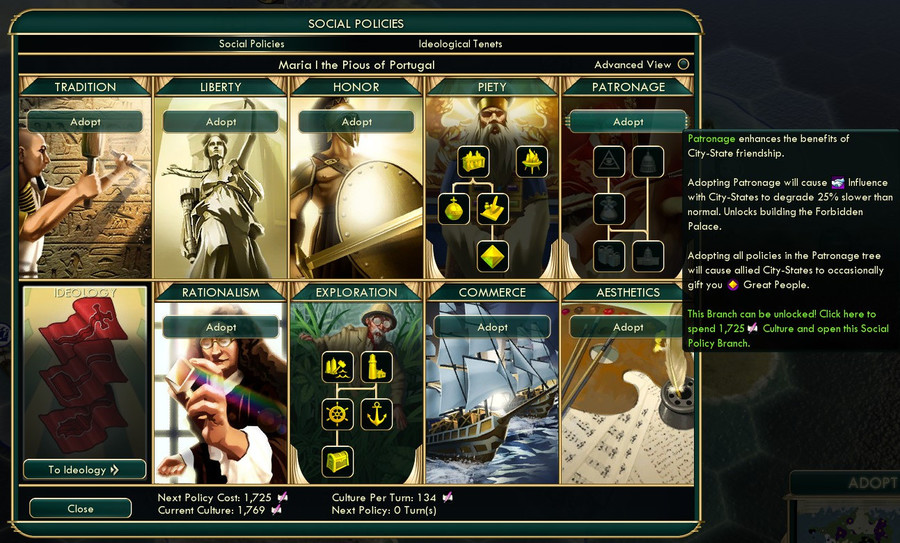
Dona Maria, recognizing that her people wished for freedom and peace for the foreseeable future, was prepared to take steps towards improving her appearance as a diplomat and stateswoman of renown.
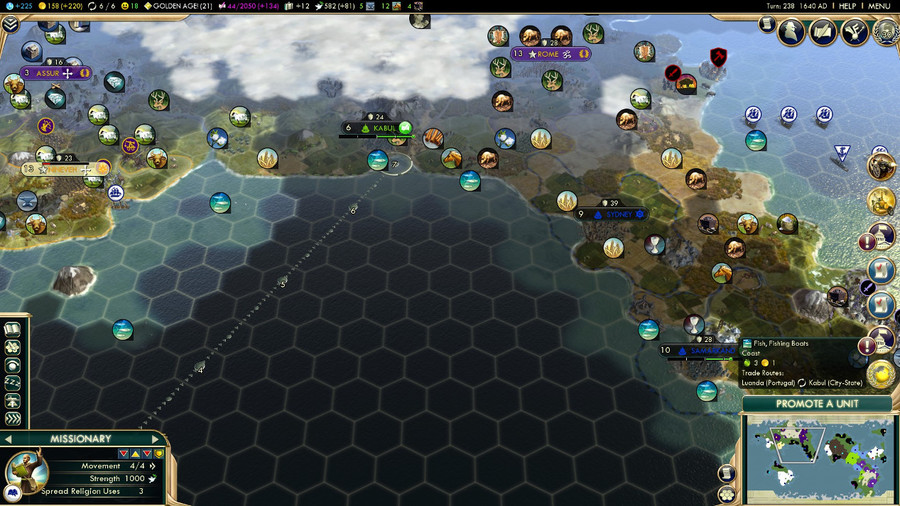
She was also cognizant of the fact that the spread of Sebastianism formed a good opportunity to do just this, as her people might find common ground with like-minded thinkers around the world.
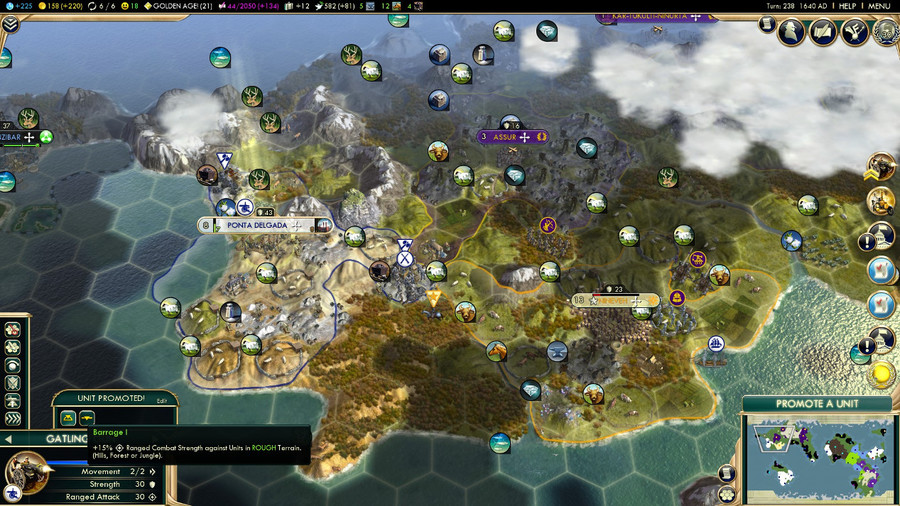
The Açores also saw to expanding their operations, using the new mounted guns purchased from Lisboan centres in order to fund an increasingly furious private army comprised largely of displaced Assyrians and Afghani.

Venice, however, was continuing along a path of peaceful seclusion, and seemed to approve of steps the Portuguese were taking to enable that lifestyle.
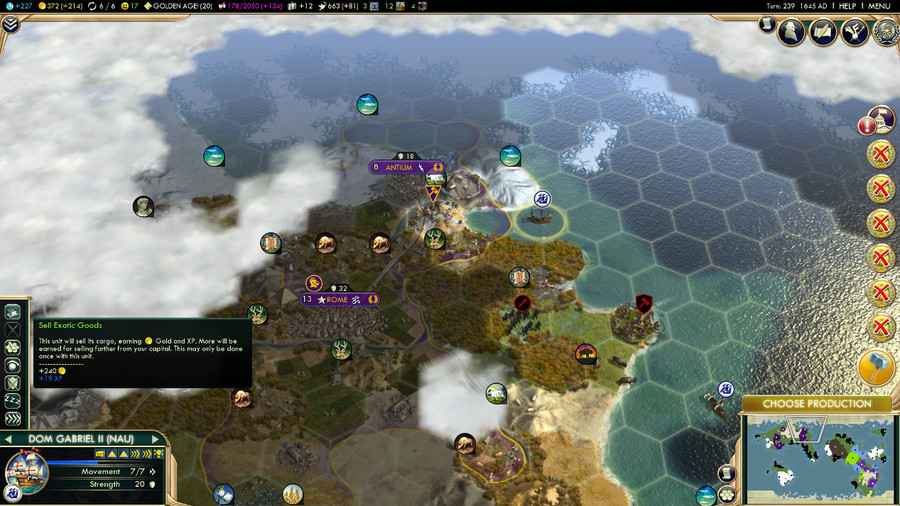
The Dom Gabriel II conducts a trading mission close to a Roman city in the interest of developing more intelligence around the circumstances of the Roman people. What they discover is a populace impoverished in manpower and morale by the efforts in overtaking an entire other empire.
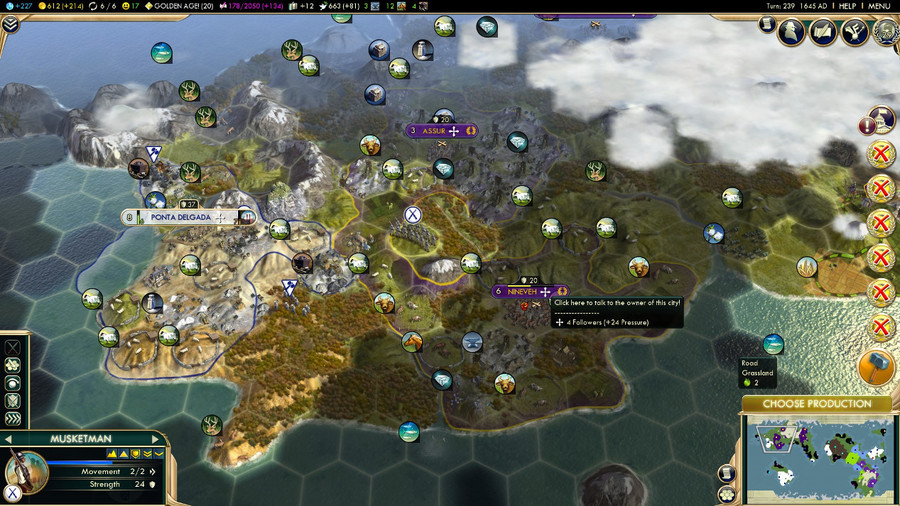
However, the Romans were nothing if not determined, and there would be no more miracles for Nineveh. Dona Maria found herself out of contact with one of her oldest friends, and her sorrow at the loss was palpable even in Portuguese times of celebration.

The Roman, for his part, seemed eerily good-natured about the whole affair, and one could imagine him inebriated from the feeling of conquest while his people starved.
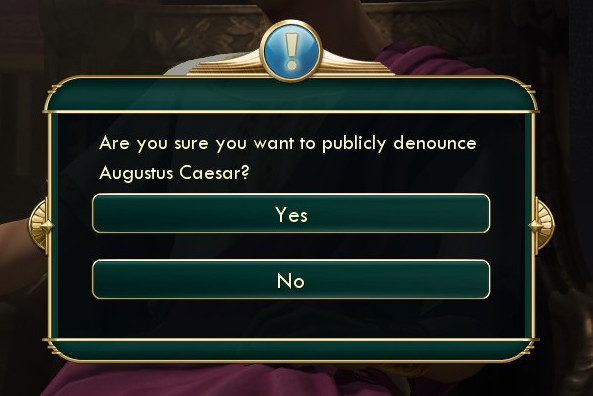
His behaviour, however, would be revealed to the world for the sociopathy that it was.
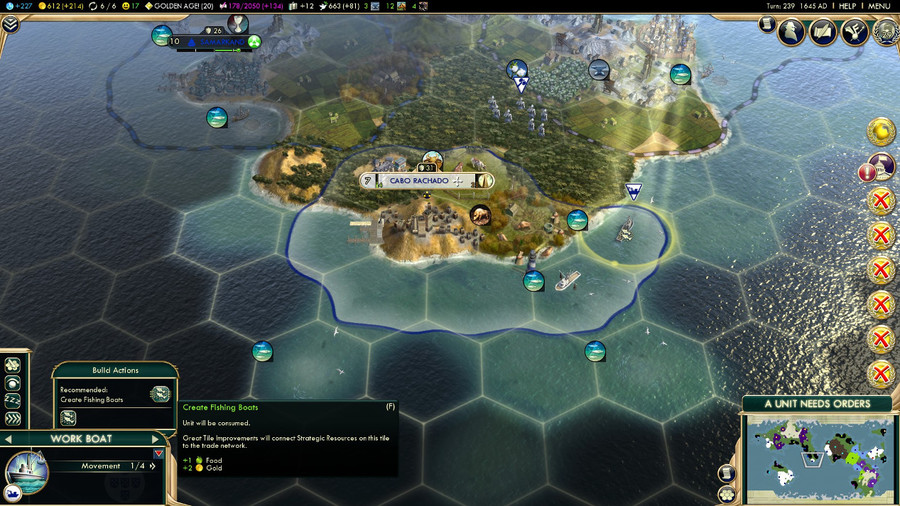
Cabo Rachado, however, cared little for the machinations of war or politics, and developed a reputation for contenting themselves with fishing and leisure.
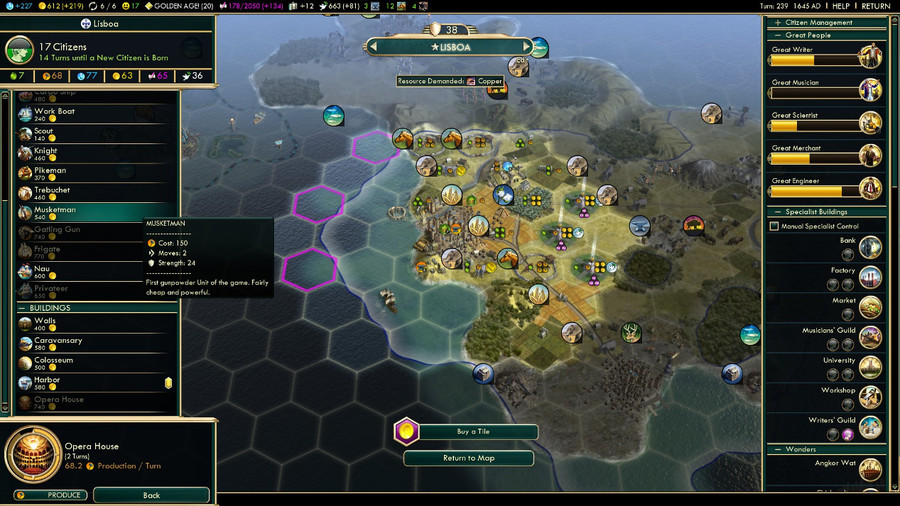
Lisboa, however, prepared their engine of war to operate on land, and purchased the services of a mercenary force to further support the Açores in their eventual mission.
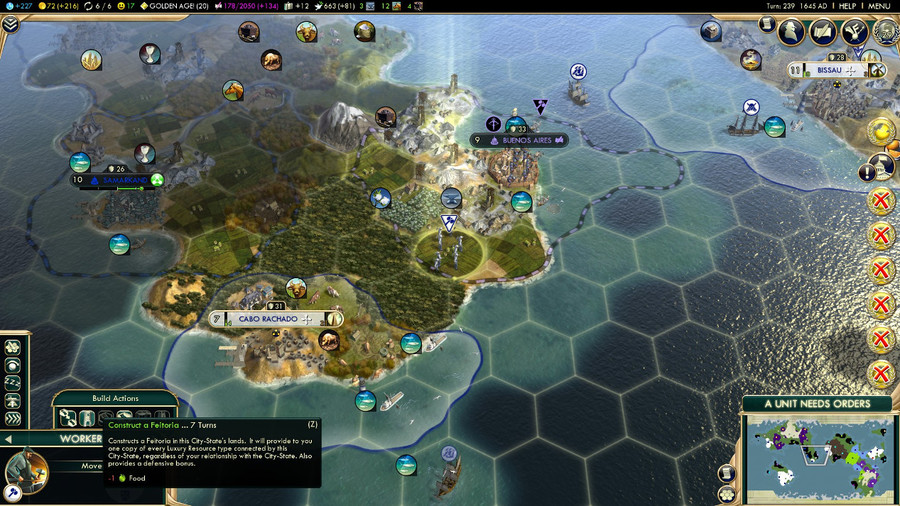
A group of workers local to Cabo Rachado decided to further support their empire by engaging in local cotton trade with Buenos Aires, that the Empire might be able to support other similar trades with locals.

The Portuguese diplomatic moves were also beginning to have an impact on past enemies.

These responses were also quite nicely received from friends.
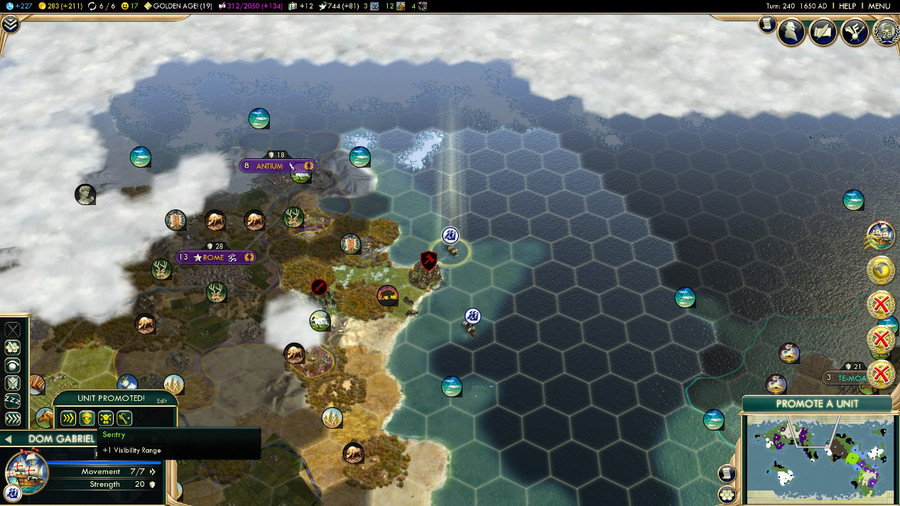
The Dom Gabriel II develops a small network of spies and contacts to deliver information, and as such becomes more experienced with developing communications techniques to acquire long-range intelligence.
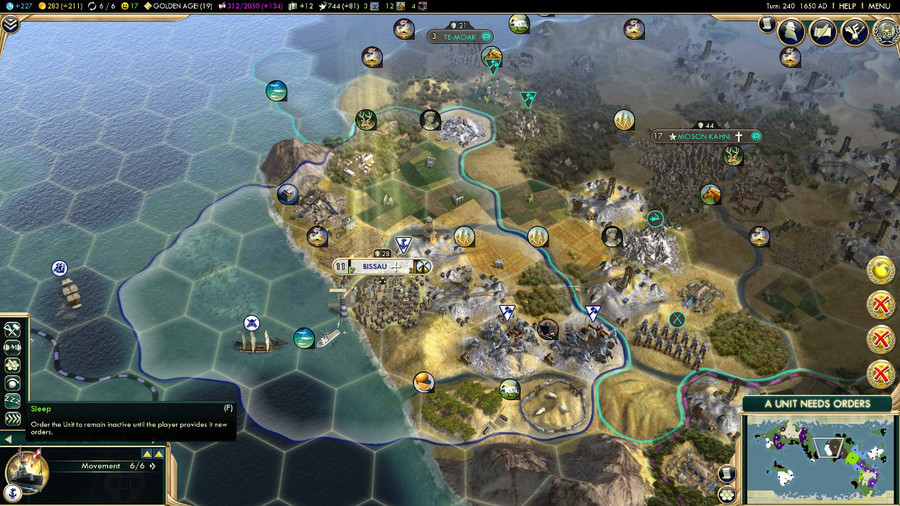
Dom João requests, and is granted, an extended leave of absence to spend time in Bissau, that he might better understand the thoughts of people in another part of the world, one that may have seen firsthand the flaws and failings of the Portuguese Empire.
What he sees marks him for the remainder of his days. He is witness to both extreme poverty and grandiose wealth, Sebastianists, both native and originally of Lisboa and Luanda, extremely joyous at the state of the Portuguese Empire, while others who have refused conversion or failed to learn the ways of the Portuguese are marginalized and stricken by malnutrition and diseases thought long dead.
Dom João wonders about the peace he fought for at one time, and wonders why every Portuguese cannot experience it the same way.
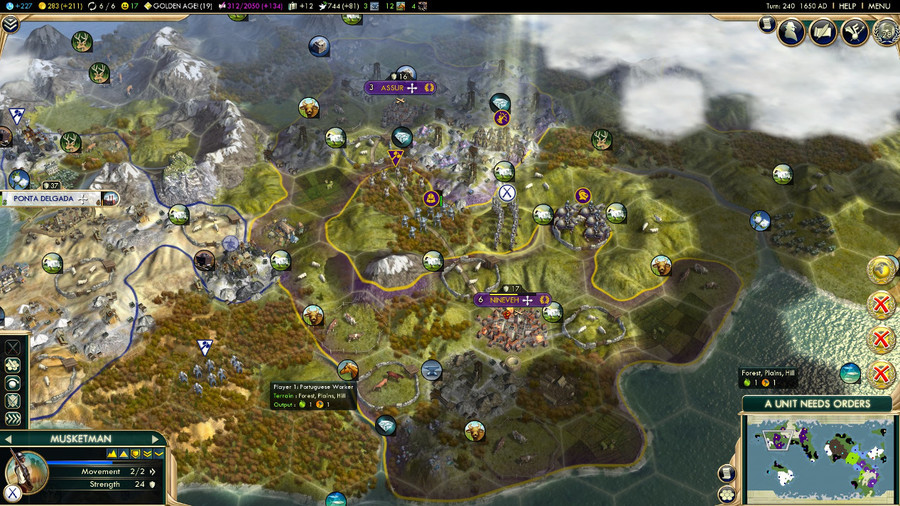
In light of this, he considers the fate of the Açores, and what they may face in the quest to bring peace back to Assyria.
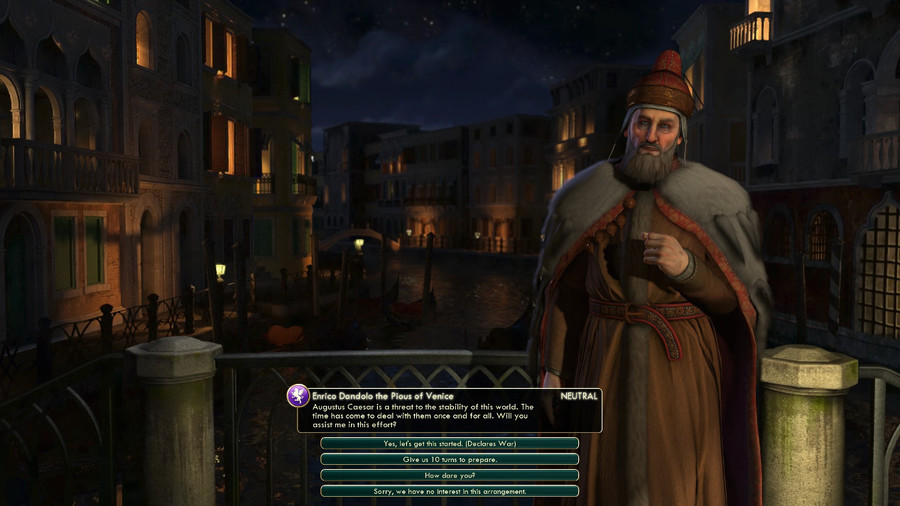
Dandolo, suddenly seeming quite cognizant of the circumstances of the Assyrians, suddenly requests aid from the Portuguese to make war upon the Romans. Dona Maria is so confused by this that she wonders if perhaps he has been overtaken by the fever of war that the Portuguese once suffered from, and refuses his request for what she assumes is his own good.

Dom Pedro, however, offers only his measured words of support for the time being, and for Dona Maria, that is enough.
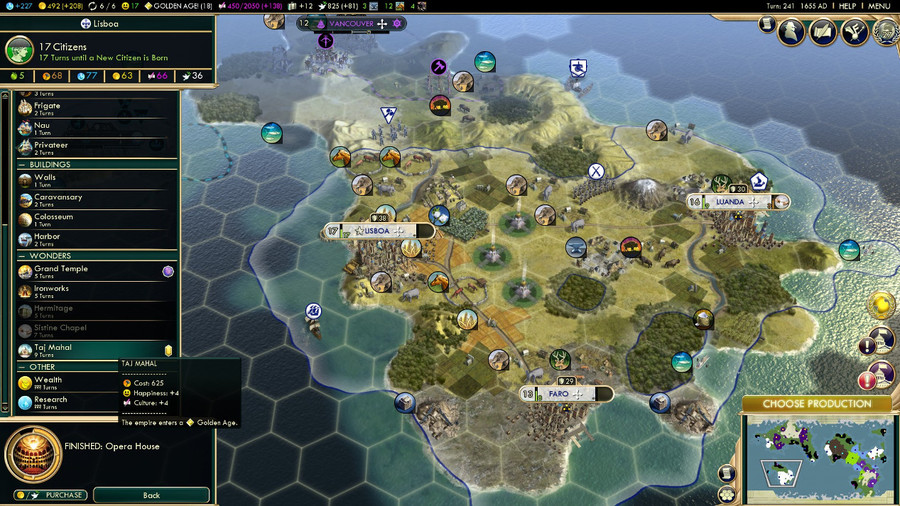
In light of these trying times, however, Dona Maria decides that keeping the spirits of her people up is a priority, and commissions various expansions to the royal palace where a number of festivals are still taking place.
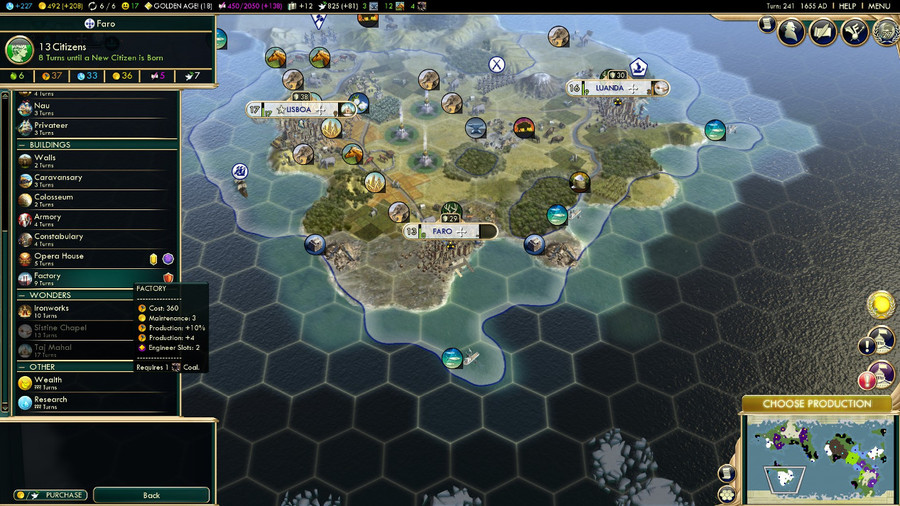
Faro, however, remains committed to industry as ever, and the hardy people of the southern tundra begin taking to steam power with surprising enthusiasm.
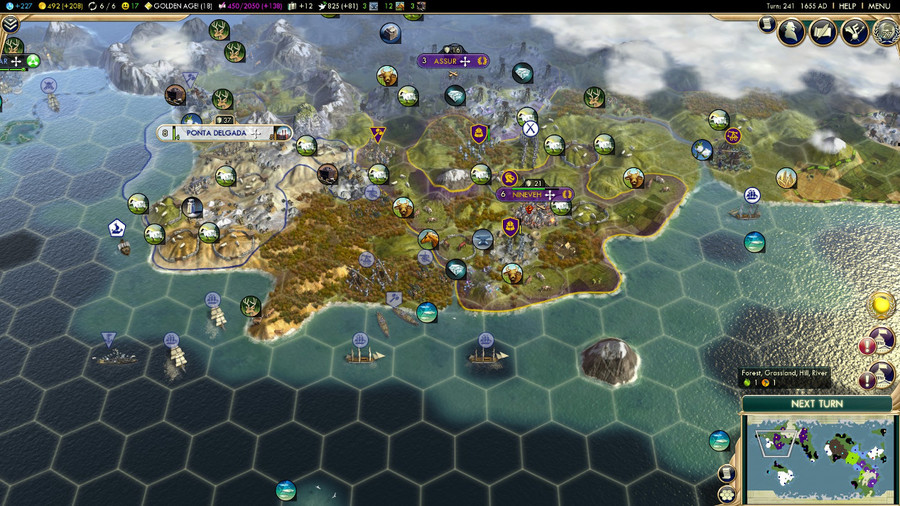
With each passing day, the anticipation builds for Portugal's first major campaign on land.
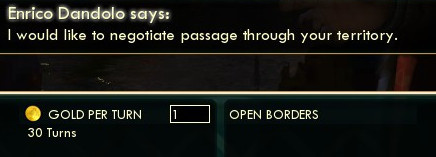
Dandolo makes another attempt to send his missionaries through Portuguese borders, but no, as it always does, means no.
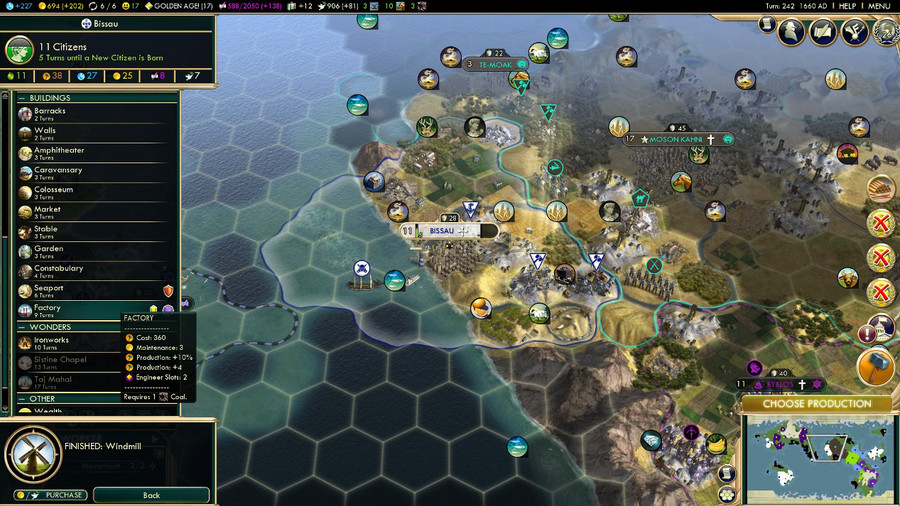
In Bissau, Dom João looks to providing jobs and opportunity to the locals by organizing a union of workers similar to that of a marine vessel. Though he acts as its head, he makes guarantees of certain labour rights and considerations and informs the local lawmakers that his intent is to provide his people with a space to find work under terms they find accessible. Though they are leery of the particulars, Dom João convinces them of the opportunity to find profit through a happy labour force, and the Sebastianist mayor agrees to implement the potential reforms and begins work on a Factory.
The initial success of his idea is something that inspires Dom João to look deeper into the political world.
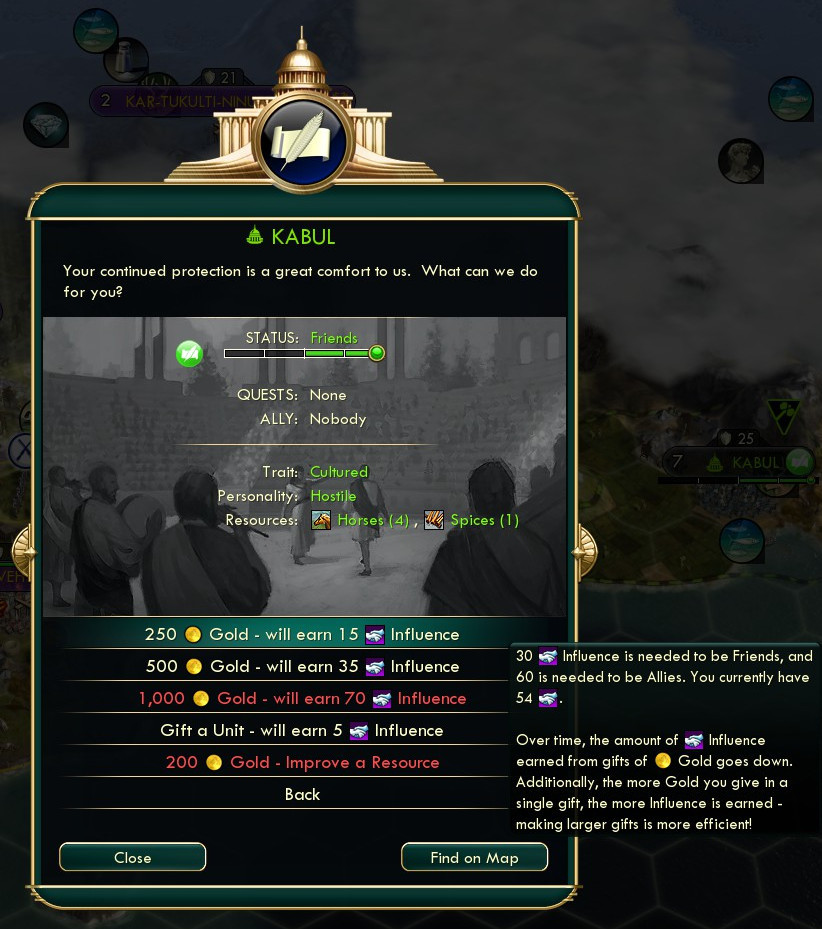
He sees that wealth, managed properly, may indeed by a mechanism for positive social change.
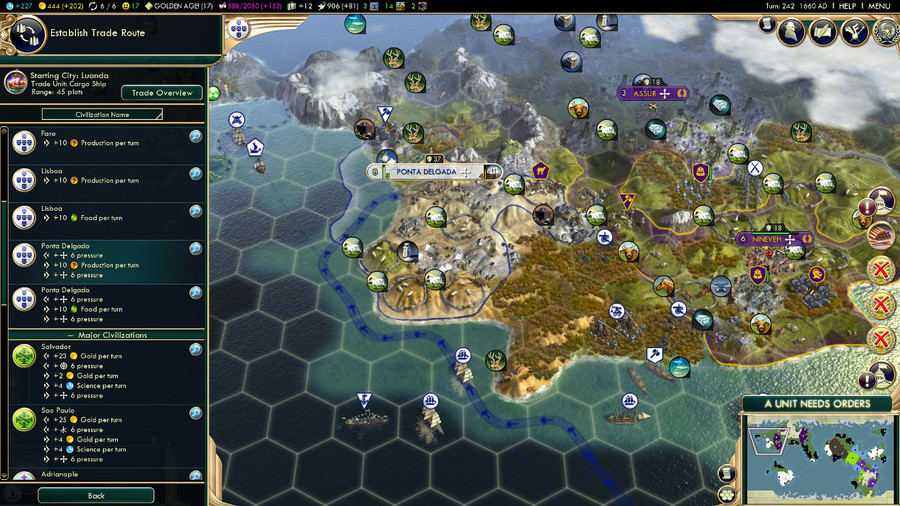
Labour, when shared and approached as a fundamental act of cooperation between people of different backgrounds, can bring power and even enlightenment to local populations.
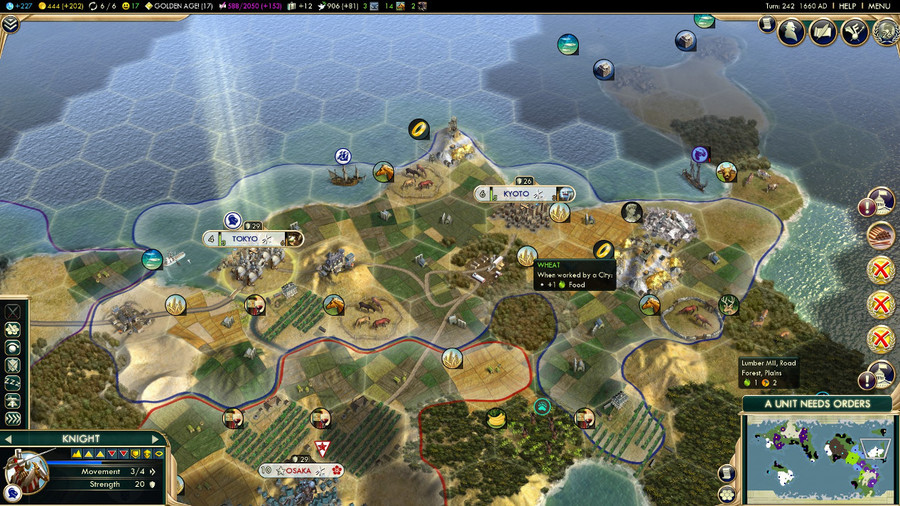
However, it is also important to recognize that even in times of conflict, a degree of self-governance is important to ensure the satisfaction of local populations.
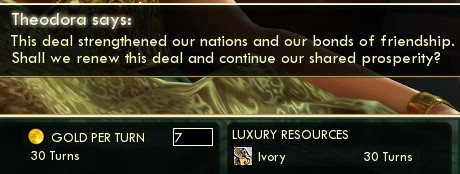
Deals with other nations are an important step to ensuring that peace can thrive
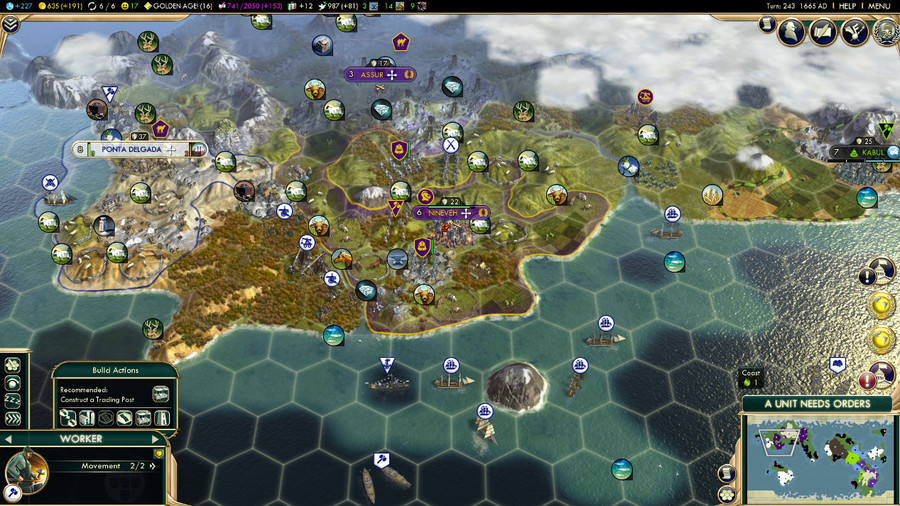
However, when war is the only option, then it must be sought with the full will of the population to achieve victory against tyrants and oppressors.
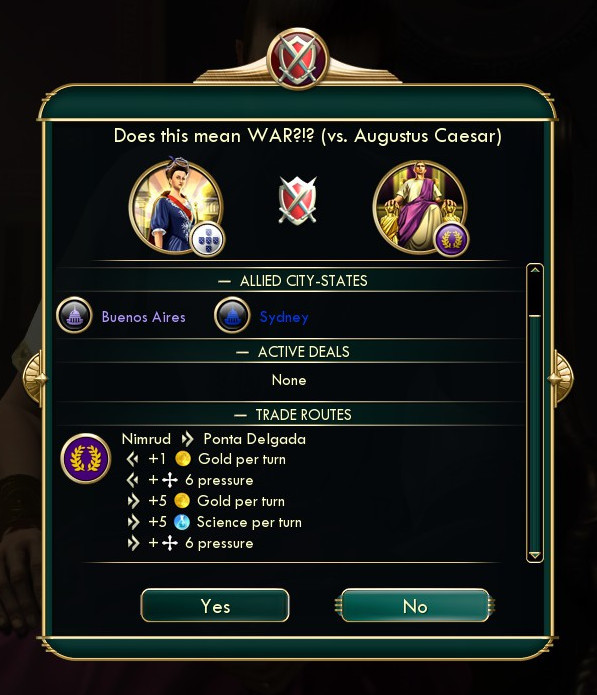
Yet...there is a problem.
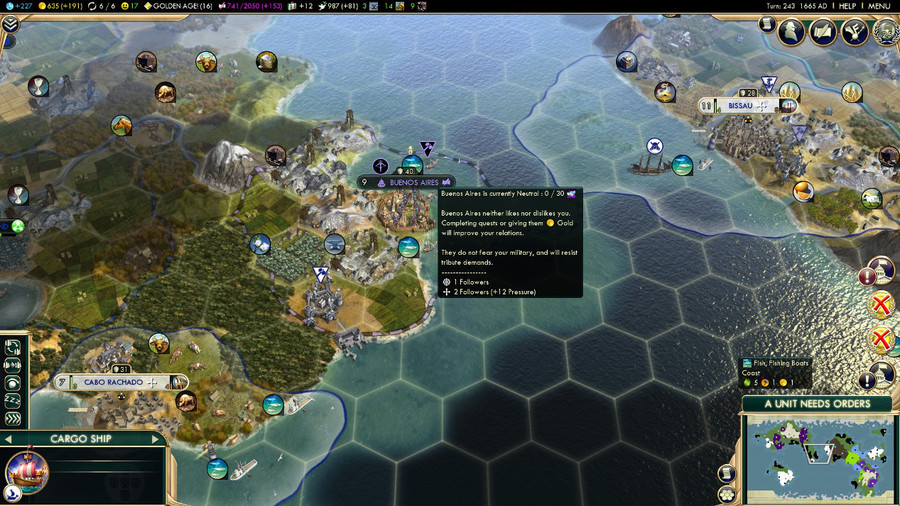
The Roman somehow has the allegiance of Buenos Aires, and going to war with them would place Cabo Rachado in some danger.
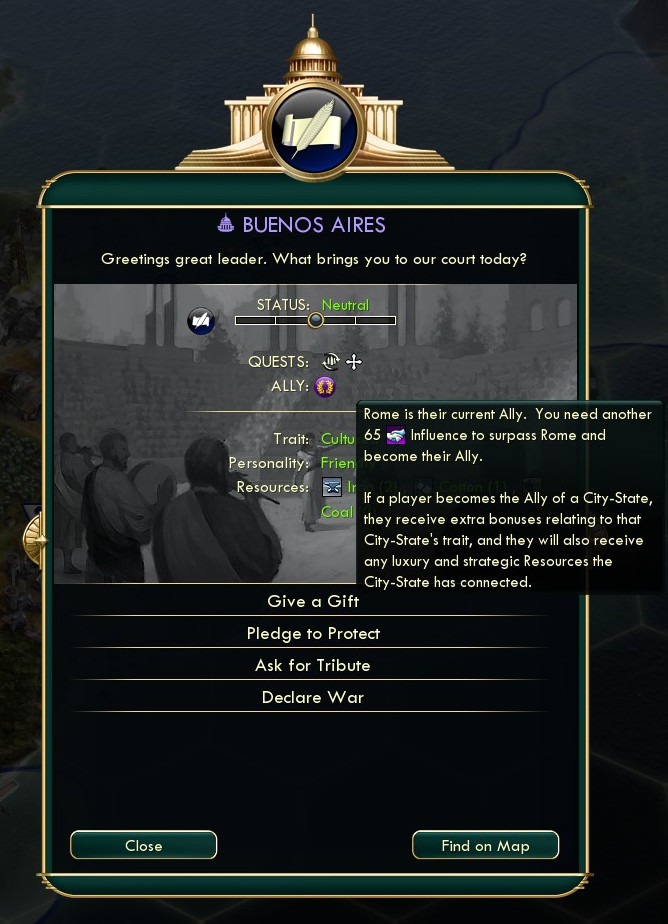
However, Dona Maria sees an interesting opportunity to resolve the problem almost immediately. The locals are curious about Sebastianism and are looking to bolster their economy through trade.
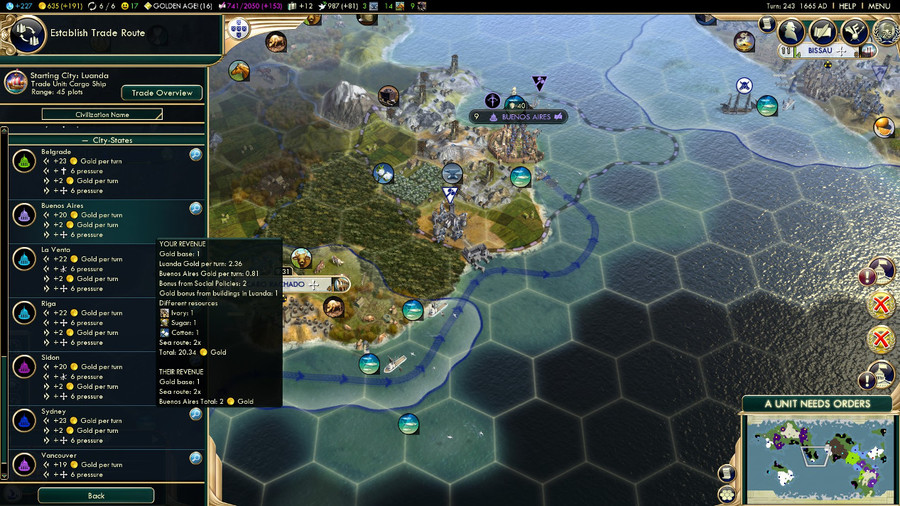
The former will have to wait, but the latter is an area that the Casa can address easily.
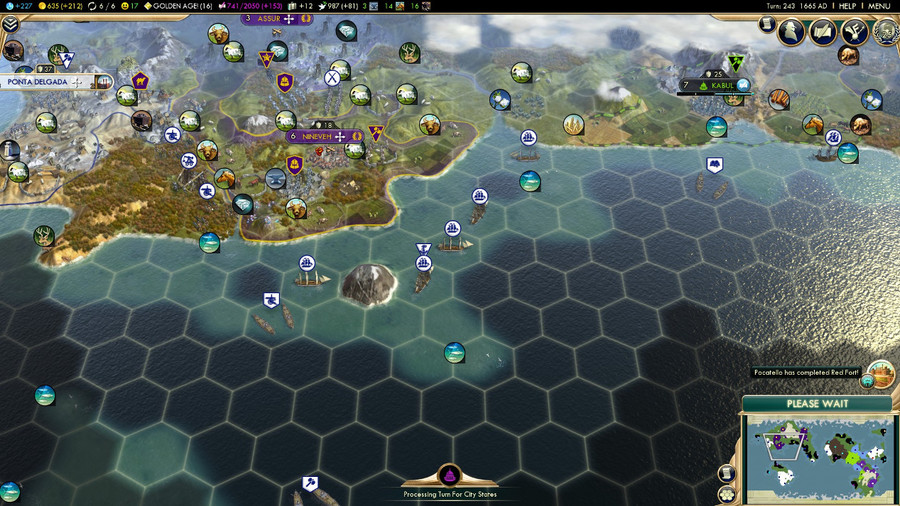
The Armada continues the process of getting into position, and the Shoshone begin to reveal new developments in national defence.
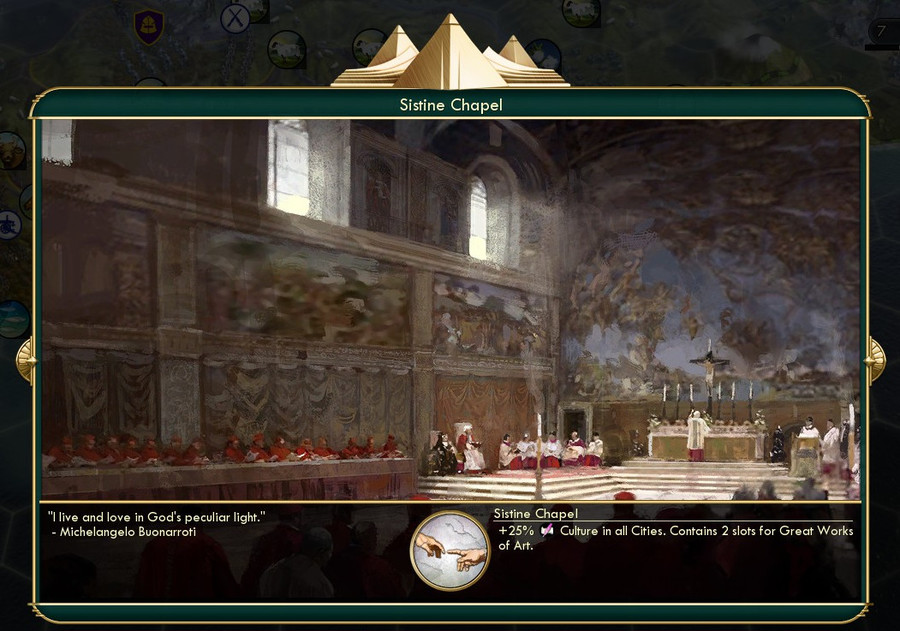
For the Portuguese mainland, however, the time has come to celebrate art like never before.
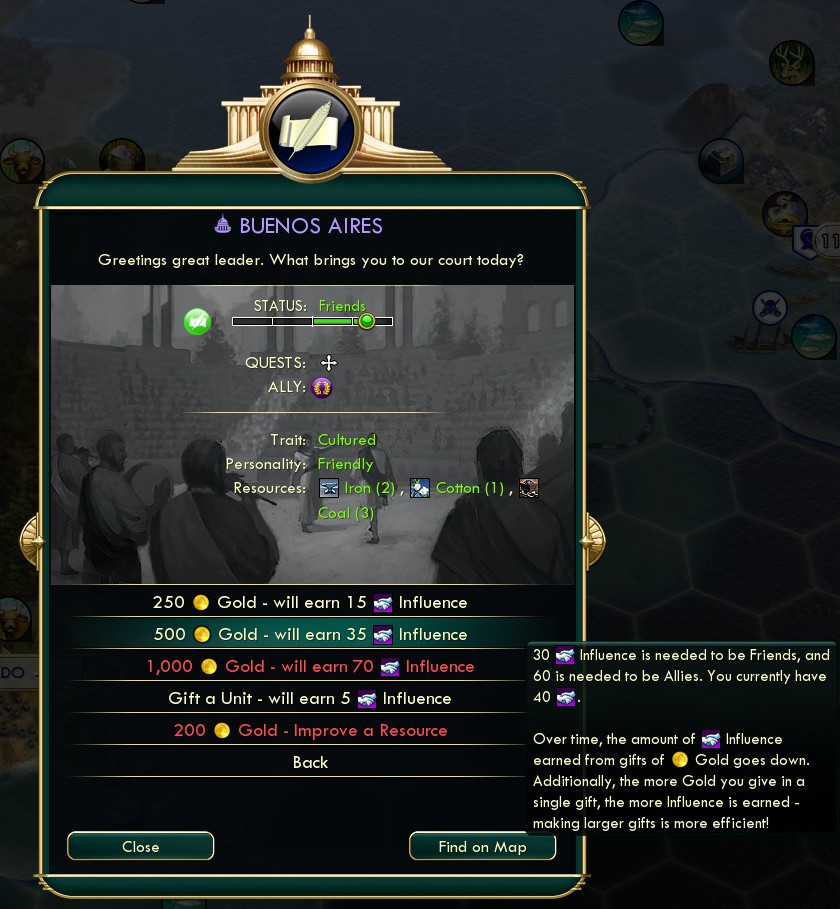
With an infusion of funds from the national coffers, the Argentinians are convinced to rescind their agreement with the Roman in favour of Portuguese alliance.
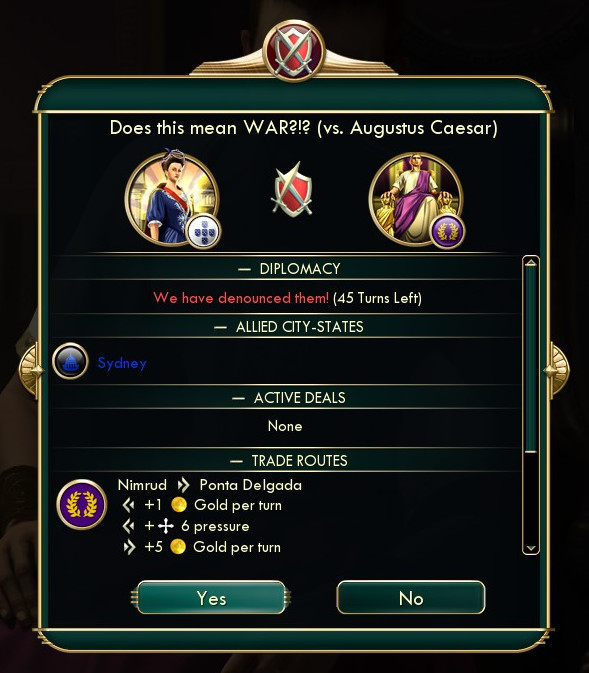
Now is the time for conflict.

Per usual, Nossas Senhoras fire volleys at land targets, but their cannons are unable to reach Nineveh as their lines of sight are blocked by forests and hills.
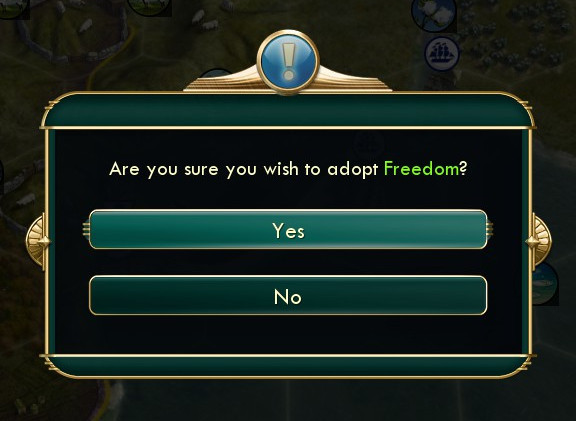
However, in the midst of the war, Dom João returns to Lisboa with a surprising declaration.
"My Queen, it is time to give freedom to the people of Portugal." He states, provoking a seemingly...practiced reaction from his former liege. "I have seen it in Bissau, the people there grow stronger, more enlightened, more capable than they ever have before. Who is to say that a monarch of Lisboa is fit to rule them? Who is to say that we cannot find a better way of ensuring that these myriad people we call Portuguese live better lives?"
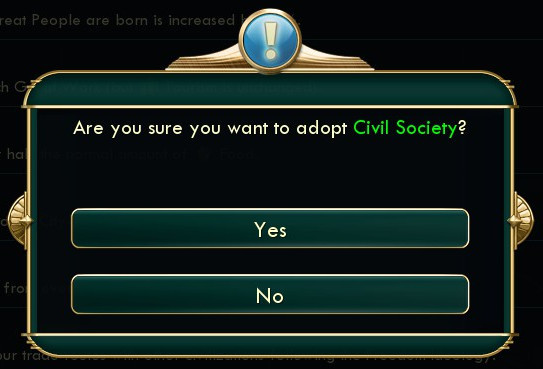
Salazar, also present, responds icily.
"You fool, we live in a world where strength and power determines the shape of the future. It was so when Sebastião hunted in the fields, and it is true now when we face the Roman mongrel once more. Whatever ideas you have about the hope for the future are hopelessly mired in delusions and dreams. People cannot coexist without conflicting strength determining victory, no matter how you wish it were so."
"I've heard enough!" Dona Maria explodes. "I have seen it to be so. The two of you may never see the future of Portugal as one, but both your ideas hold merit. Indeed, strength will still determine the future of our nation, and the people from everywhere from Kyoto to Ponta Delgada must have a stake in that future. However, in the end, I expect the two of you to coexist in such a future, because your nation and I demand it of you!"
Both men fall silent, and Dona Maria storms outside to address the festival-goers, eliciting cheers before silencing the crowd.
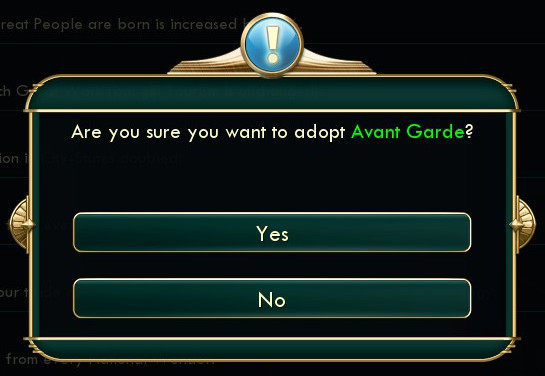
"I have seen, in many dreams past, that the people of this world possess many wonderful and terrifying ideas about the future. Each and every one of you bears a vision of how this nation must be run, and upon awakening I remember hearing each and every one of your voices. I had thought our Goddess was blessing me with her own directive, but I now realize that it was all of you, determining how we must make Portugal grow and prosper. Now, I realize that the time has come to dispense with the dreams and the illusion of rulership, and allow you all to show the world that your decisions are what will steer this ship forward."
The crowd is stunned into silence, though there are some screams of dismay and confusion when Dona Maria wildly rips her crown from atop her head and throws it violently into the crowd.
"From this day forward, that crown's only value is in gems and gold. I hereby renounce my name as Dona Maria Primeira of the Kingdom of Portugal. From this day forward, I am Maria Bragança, and I am here to tell you all that it is my intention to run for President of the Portuguese Republic, if you will so have me.
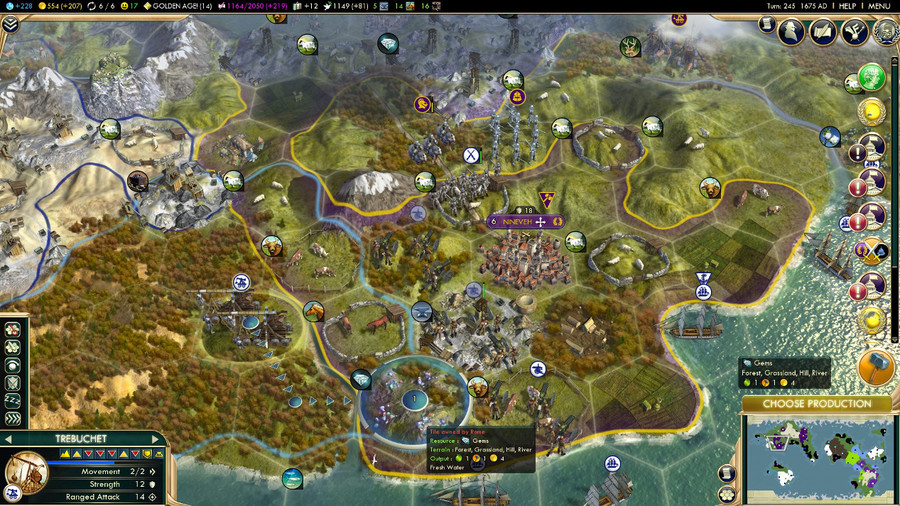
The word barely had time to reach the front at Nineveh before Portugal's first elections were formally announced. The incredulous Portuguese were stunned to hear that their monarch was considering the likes of Almeida and Salazar as political rivals rather than underlings, but were finding themselves increasingly excited to represent a Republic.
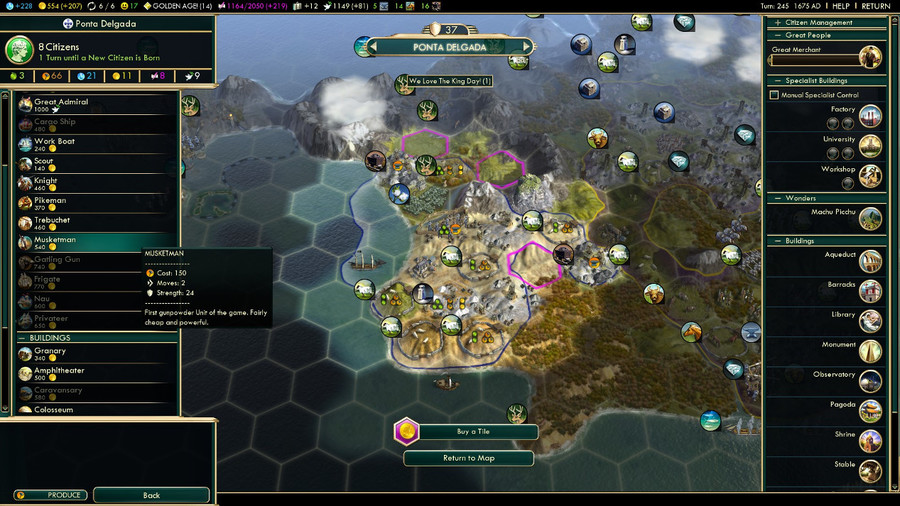
War remains businesslike as ever, though. More Assyrian mercenaries were hired from among the ranks of refugees, and they prepared to take up arms in the service of the liberation of their home.

The Sebastianists currently taking to Kabul to provide education were as shocked as the famous local artisans, who began making haste to tell the story of the birth of the Portuguese Republic. In their rush, several of them still included word of Maria as the leader of the nation, while there was still a possibility that this would not be the case.
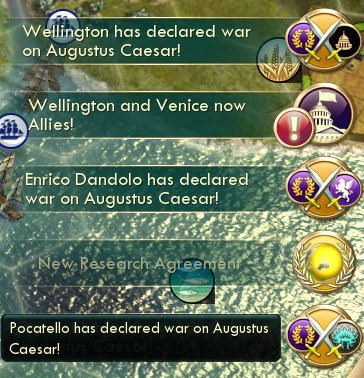
However, in light of Maria Bragança's acts of diplomatic prowess in taking the lead in this now world war against Rome, there seemed to be little doubt as to who could best capture the hearts, and votes, of the people in the end.
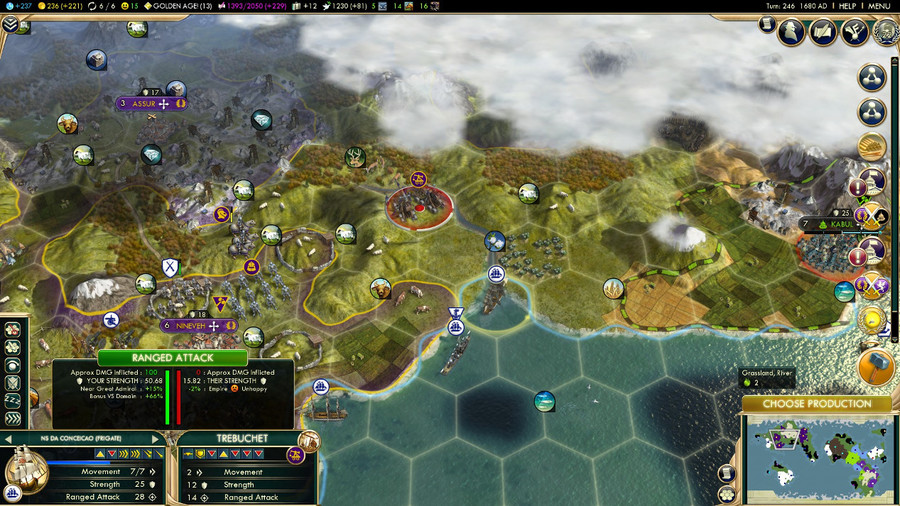
As the cannons of the modern Portuguese frigates crushed the feeble Roman trebuchets of yesteryear, the men of the Portuguese Armada debated the relative merits of their chosen leaders while filling out absentee ballots.
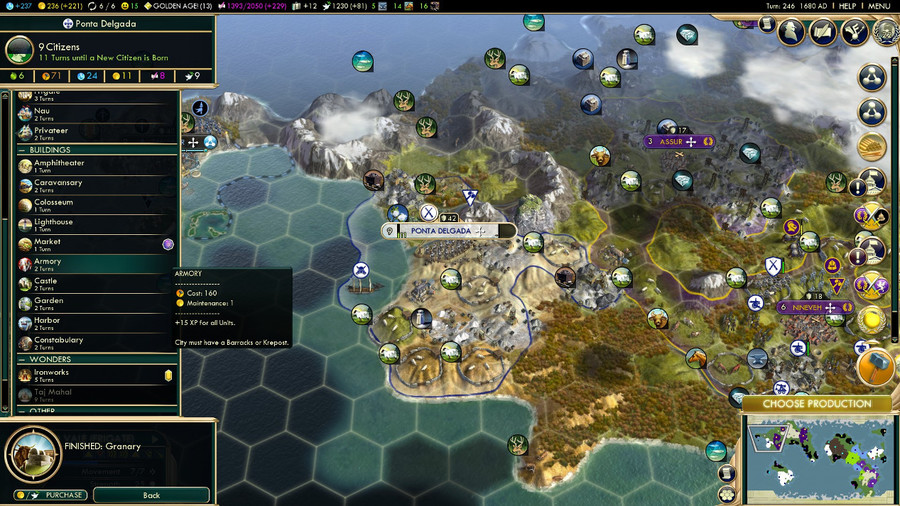
The people of Ponta Delgada seemed hopeful when they heard that the front was making steady advances on Nineveh.
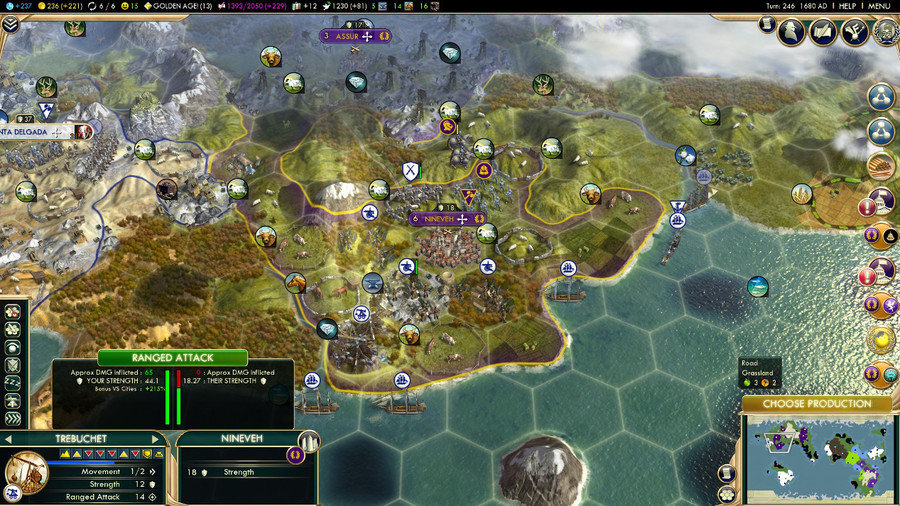
Portuguese weapons of war began making good on their promises of salvation
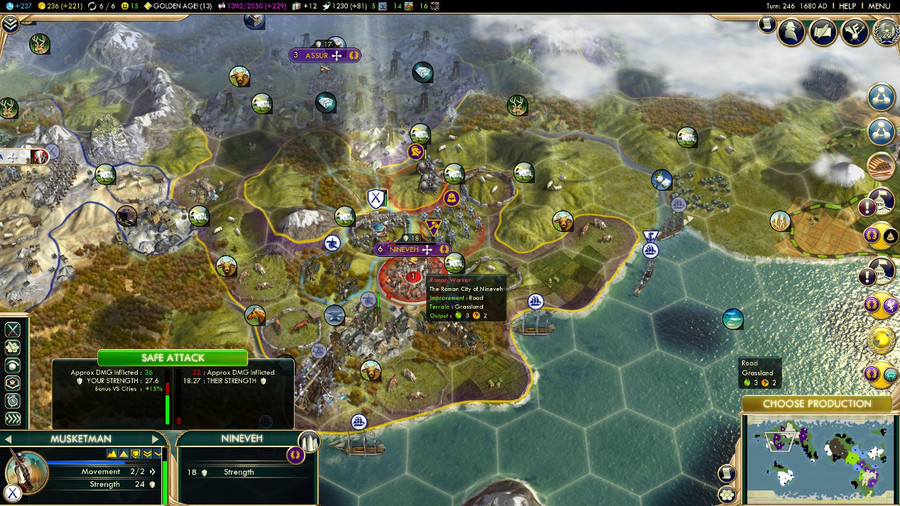
Just like that, the defences of Nineveh fell quickly.

They fell so quickly, in fact, that the raiding Açores were also able to free a number of Afghani who had been enslaved by the Romans. This move earned the Portuguese a significant measure of diplomatic support in Kabul.

Even more surprising was the fact that they located the monarch in exile, Ashurbanipal, hiding in the city of Nineveh as well. He had been spirited away by Assyrian loyalists hiding from the Roman, but upon the City's capture he was quickly returned to his local palace to ostensibly resume the business of running what remained of his country.

"I cannot even begin to thank you for what you have done today." Ashurbanipal said to the musketeers. "I had thought my people would be crushed outright by the Romans, but somehow you Portuguese have found the strength needed to find victory where I could not."
The Açor captain currently guarding the monarch simply nodded in response.
"My only hope, your Majesty, is that you consider this moment when the time comes to determine who your allies are on the world stage."
As you can see, you have a unique relationship with a Civ that you restore after its complete destruction at the hands of another. This guarantees friendship for a while, and gives you certain privileges like Open Borders for a time as well. There is a time limit, however, after which you cannot Recall a Civ whose cities belong to another for too long, since they are considered extinct at that point.

Ashurbanipal signs an agreement of mutual defence with the Republic, and the Açorean freedom fighters go forth to eliminate the next bastion of Roman tyranny.
It is at this time that the election results arrive, and despite Maria's misgivings about her chances when she heard that equal votes would not in fact be awarded to horses or elephants, she was voted into office by a significant majority, with Almeida's raw popularity failing to translate into effective campaigning, and Salazar's rather difficult reform proposals meeting with significant resistance.
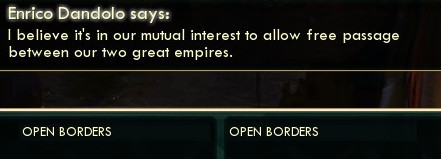
Dandolo, believing the time to be right, offered the now President Bragança a similar deal to those of the past, assuming that being able to discuss terms as now equal elected officials would result in a more favourable outcome.
He assumed incorrectly.


The warmongers of the world, visibly shaken by these remarkable changes in the world, called off their seemingly eternal assault against the Byzantines in order to redouble their efforts. For better or worse, these gestures convinced the electorate that they had made the right choice in making their former Queen their new President.
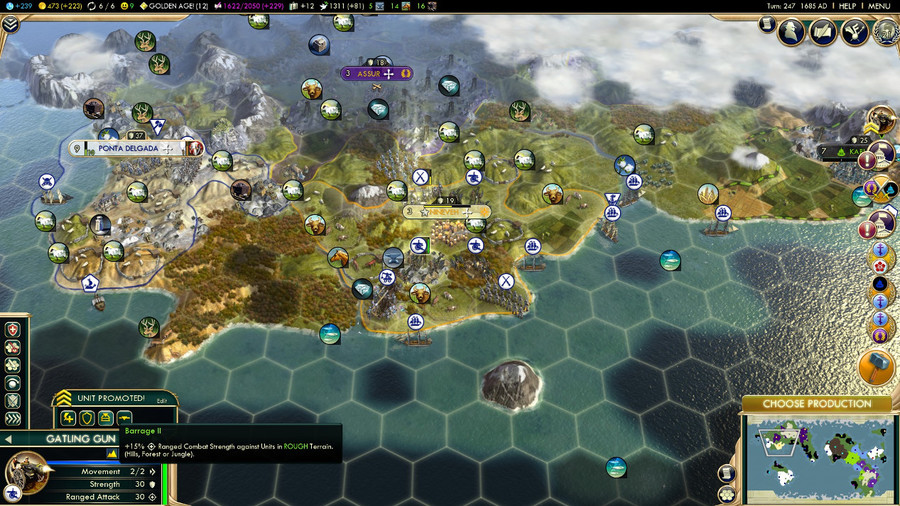
The Açores continued to develop their abilities on the battlefield, but they remained aware as ever of their true goal as Assur loomed in the distance
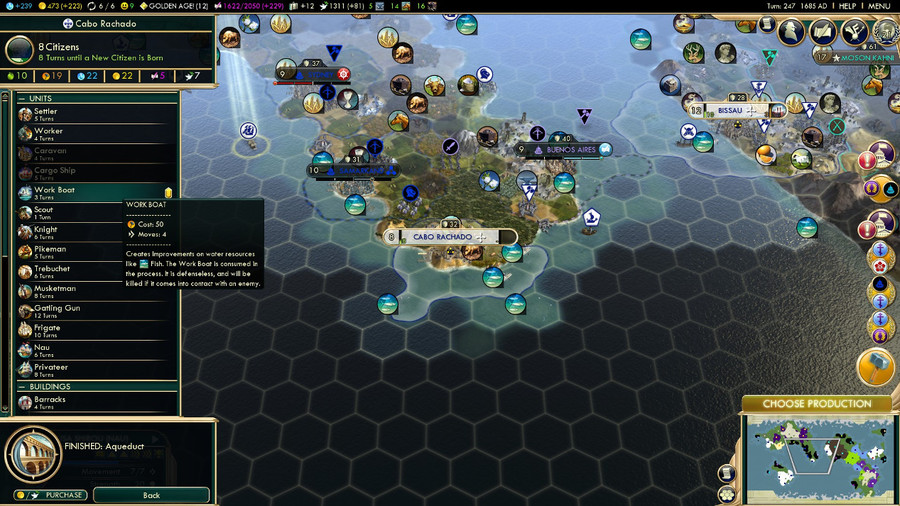
Cabo Rachado locals, still mystified at the ballots they received from the mainland, simply resumed the business of fishing after near-unanimously voting for the Queen, content with things as they ever were.
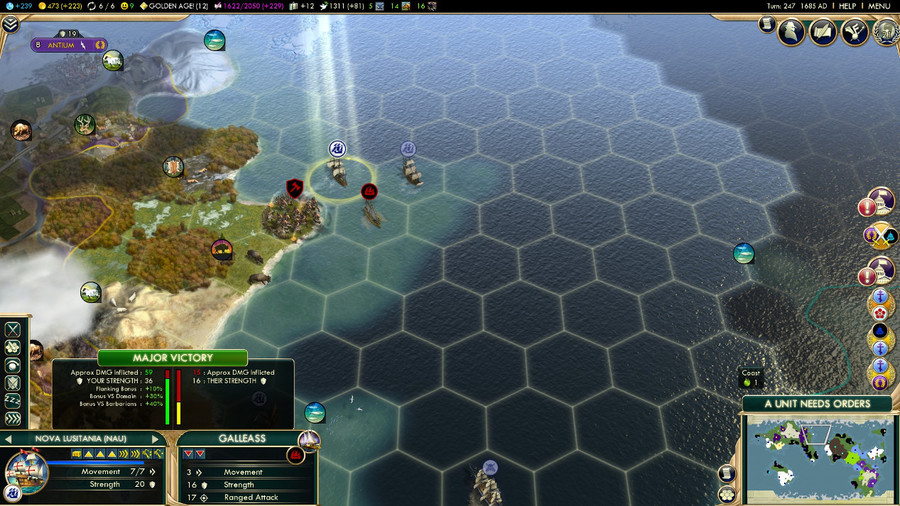
An unusual opportunity presented itself as what appeared to be Roman defectors built a ship off the west Roman coast that appeared hostile to the Portuguese, and may have presented a possible target for capture at the hands of the Barco de Guerra.

A similar opportunity presented itself to capture the hearts of the Shoshone, and President Bragança began recruiting speakers of the Shoshone language to act as diplomats to the increasingly cordial foreign power.
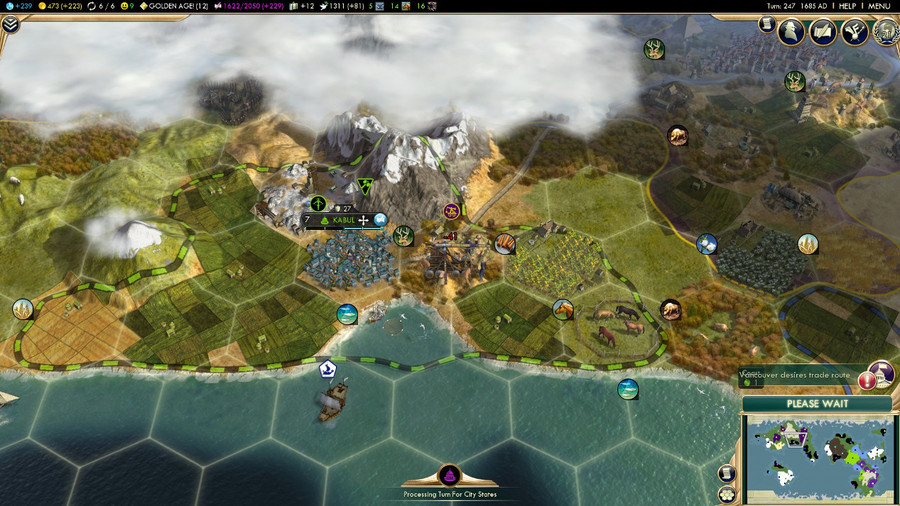
Roman weapons of war make themselves known on the eastern Kabul city limits, but they are not long for this world with the Armada so close by.
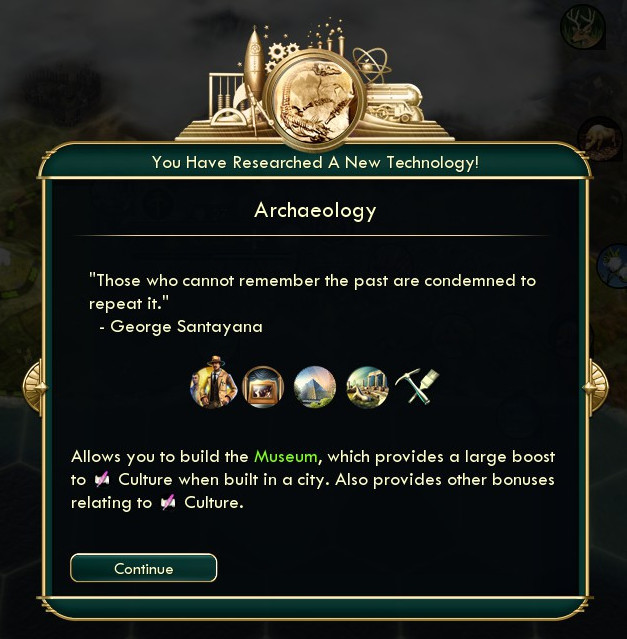
Yet, with all this focus on the future, the Universidades of Lisboa begin digging even deeper into the past.
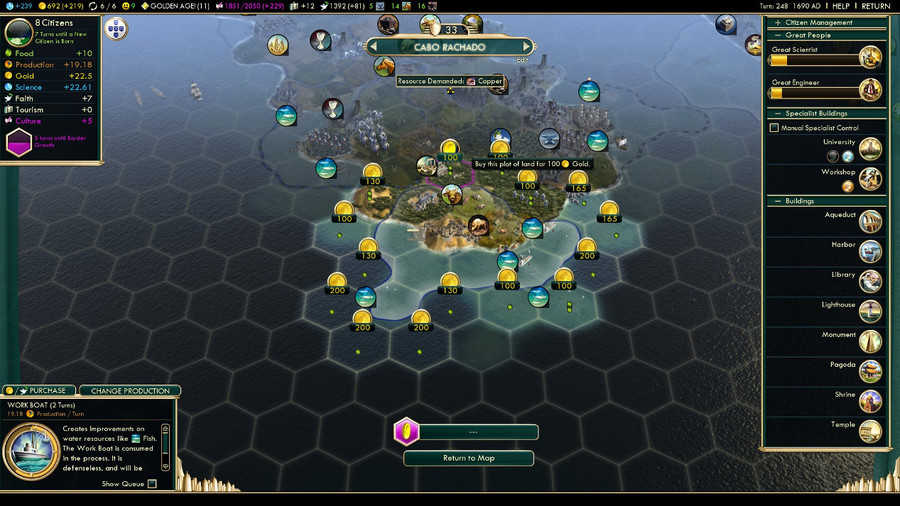
Cabo Rachado is discovered to have a site of some historical importance, and the Department of Education is petitioned to devote some of the old royal treasury to the project.
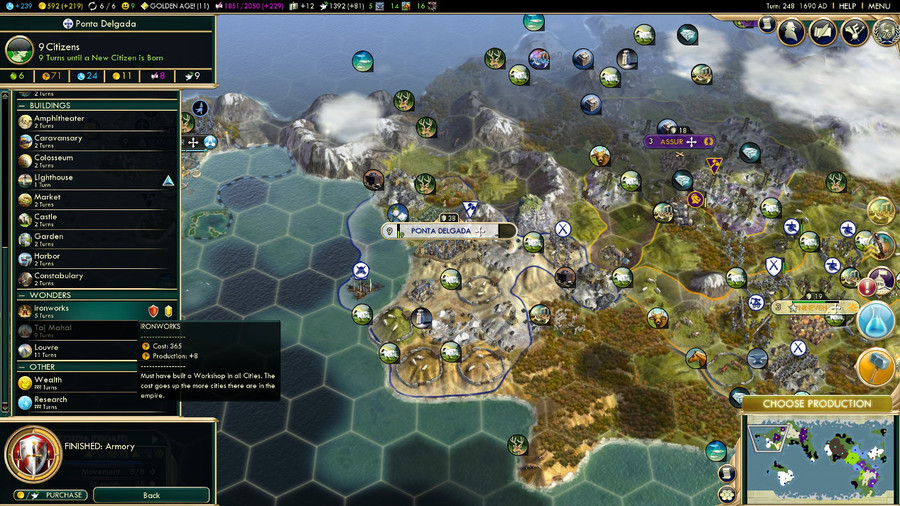
Ponta Delgada, meanwhile, begins developing a new type of iron foundry in the deepest parts of Macchu Picchu, hoping that it will contribute to the efforts against the Roman.
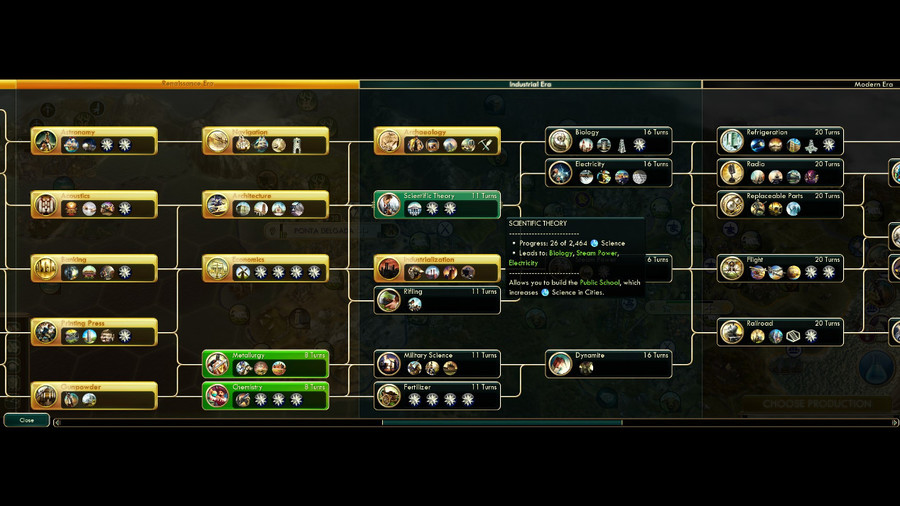
However, the Universidades also discovered some fascinating areas of research in the midst of their searches into the past.
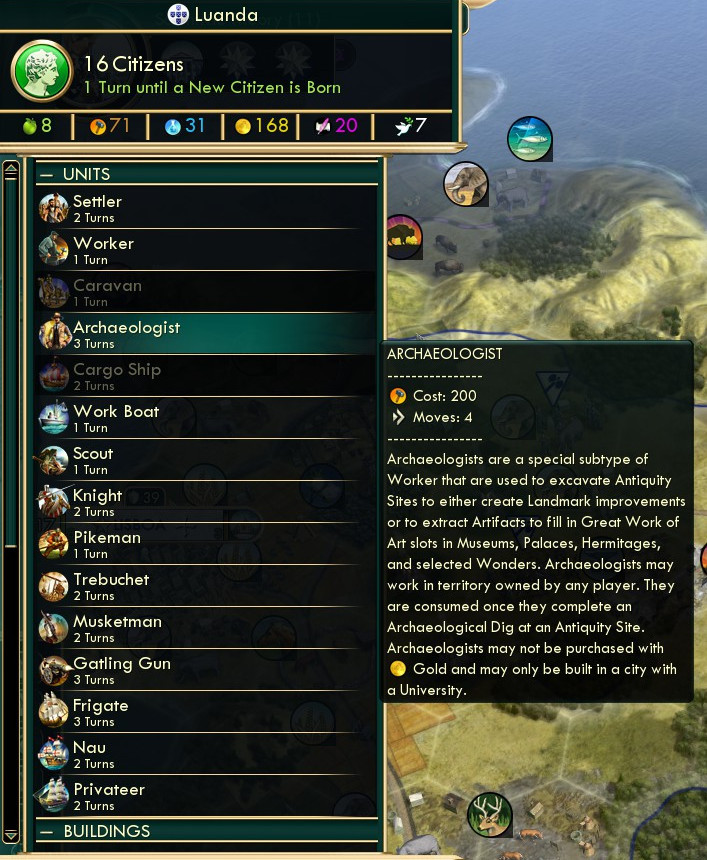
This new direction of research appealed to the ever-innovative locals of Luanda, and members of the local Universidade began to train parties of skilled explorers and scientists more about how to gleam the knowledge of the past.
Archaeologists are explained fairly well in the side there, but what this does not explain is that Landmark Improvements add a significant Culture boost to the tile on which they are placed, taking an Artifact from another Civ's territory is considered a type of theft for which the Civ will dislike you and ask you to stop (with diplomatic penalties for trying to lie about it) but keeping the Improvement in another Civ's territory is considered a politically friendly gesture. Also, Artifacts can have their own theming bonuses as well, so it is worth paying attention to the type of Artifact that is spawned when the Archaeologist finishes their work. Also worth noting is that the blue and pink sites we see on the map are considered Hidden, and only Civs that fill the exploration tree entirely have access to them.
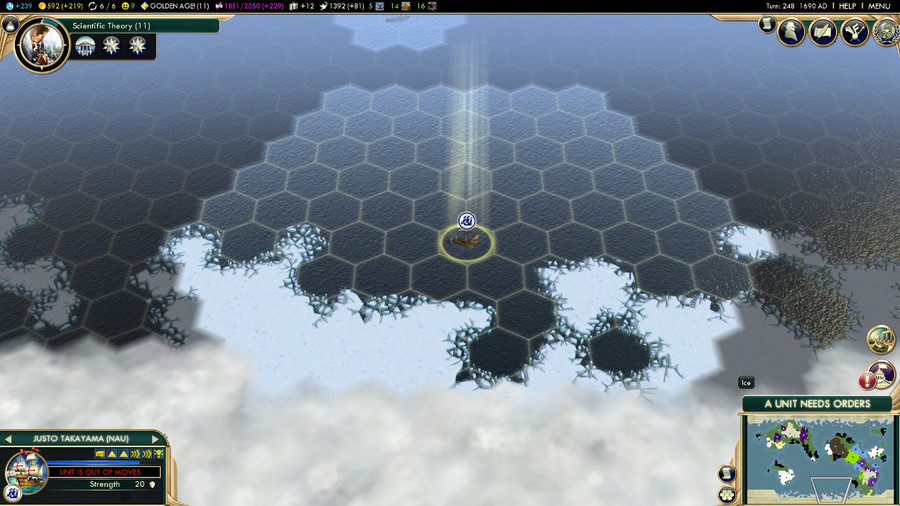
The Justo Takayama explores extremely far south in order to get a better lay of the land. However, when questioned about why they insisted on traveling so close to ice, they explained that part of the Confucian religious tradition demands a certain degree of exposure to cold water as a means of appeasing their crustacean ancestors.
The Admiralty decides that it is better not to pry too deeply into Confucian religious practices. They will only cause confusion...perhaps hence the name.
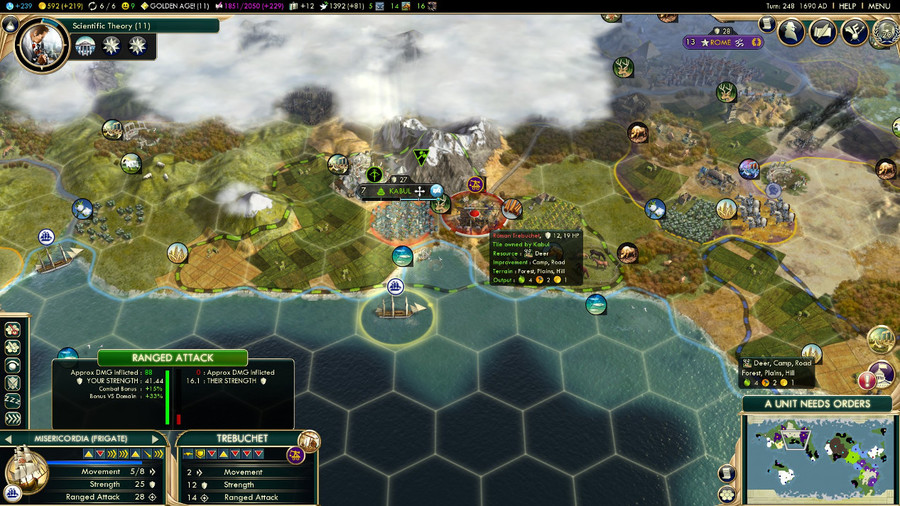
The assault force at sea makes the expected gains against Roman attempts at reinforcing Kabul.
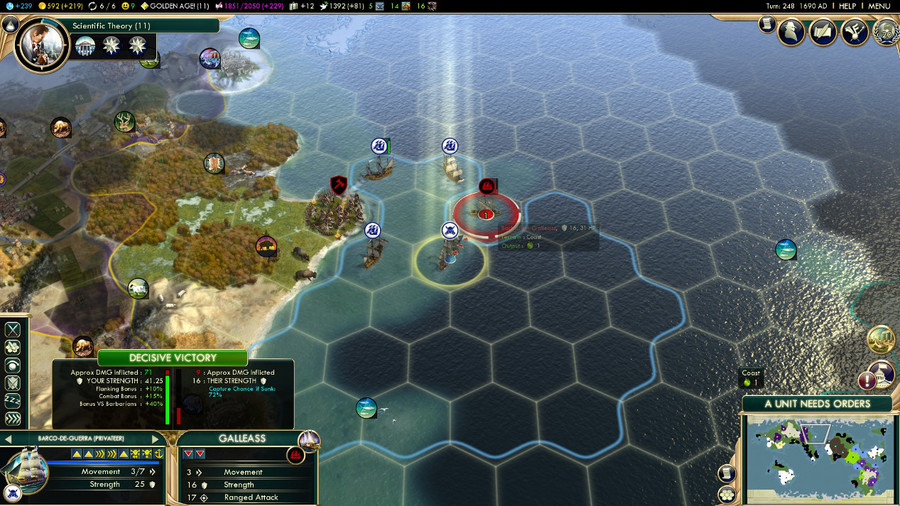
However, the Barco is unable to capture the unusual ex-Roman Galleass, as the men aboard would sooner sink their vessel than submit to the Portuguese.
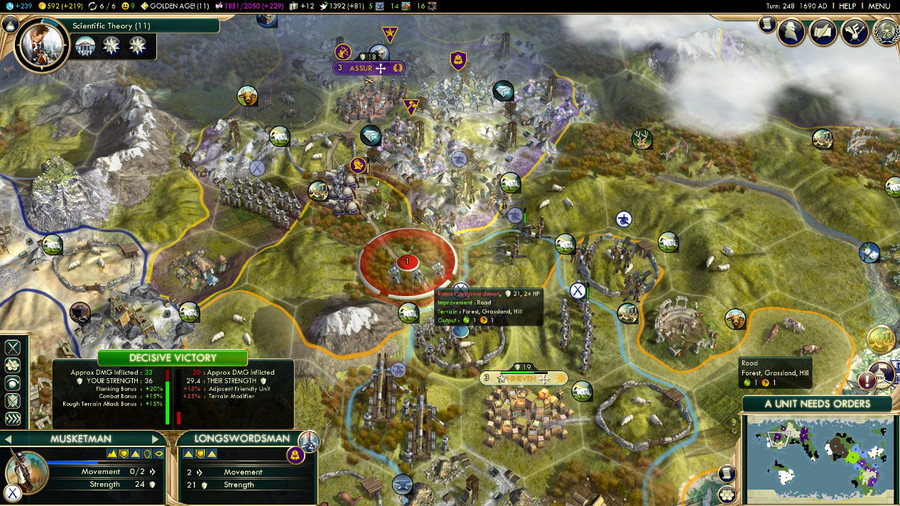
Portuguese guns decimate Roman swords, as expected, but the Romans are trained well and do not go down without a fight.
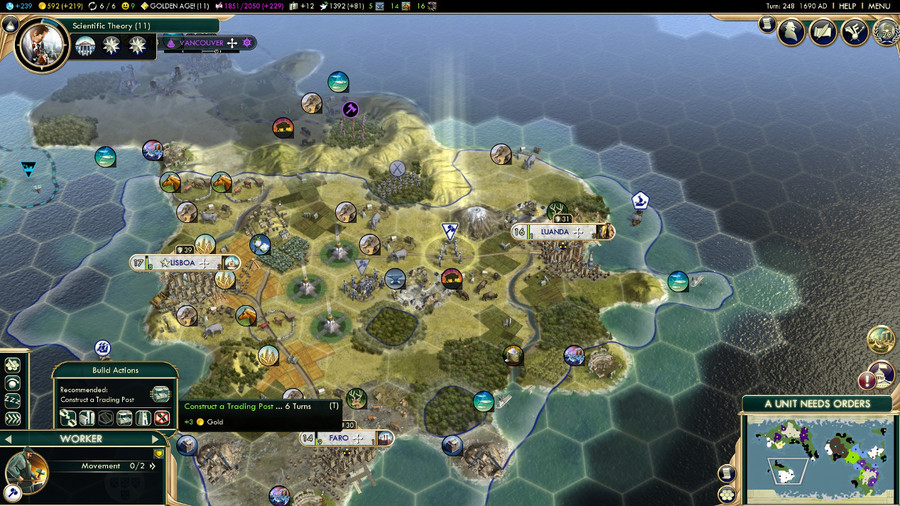
In Luanda, however, the business of commerce must always be present, and the locals build a trading post to facilitate trade between cities of the mainland.

Pedro continues to make very poor offers, and Maria wonders if he may be a lost cause when it comes to international trade.
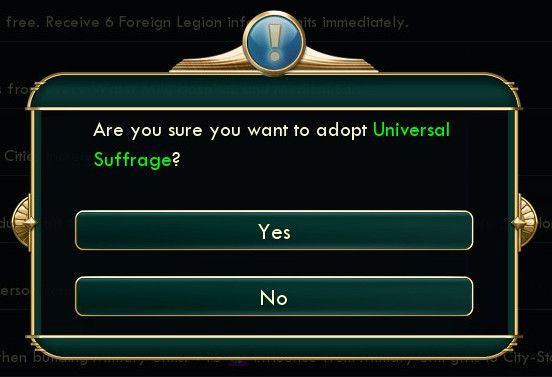
Though her reforms calling for the animal vote are shot down, Maria takes great strides to ensure that anyone calling themselves Portuguese has an opportunity to vote in the new elections, be they Sebastianist or no, Assyrian, Shoshone, or Japanese. If they live in a place claimed by Portugal, they have a right to decide who leads them.
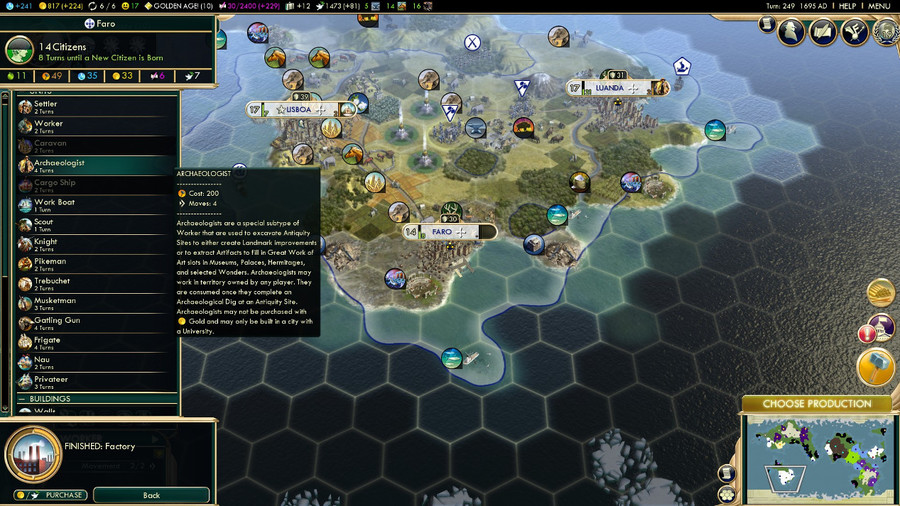
Faro, in a surprising move, also decides to explore the workings of the past, though there is a sense that they are doing so in order to find inspiring industrious heroes to lead by theoretical example.
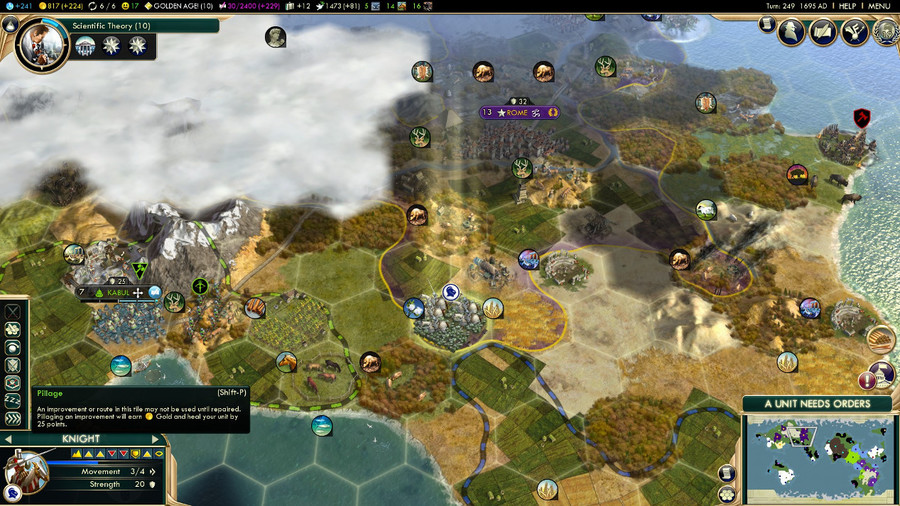
One of the Knightly orders from the mainland reaches Roman territory, and decides that the time is right to target a cotton plantation. The Afghani slaves present are freed while the plantation houses burn to the ground and the slave-masters are scattered to the winds.
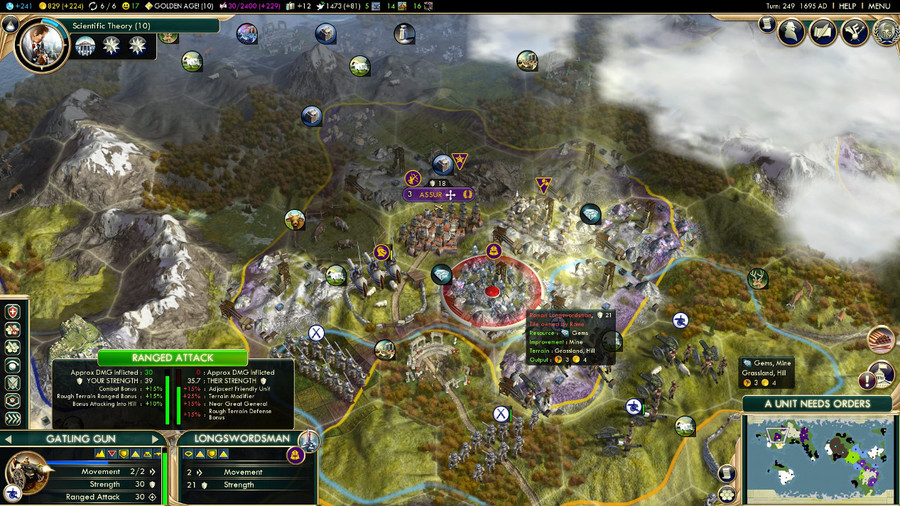
The front reforms closer to Assur, though the general charged with its defence is said to be talented and it appears as though the assault will take some time.

That said, chronic supply shortages mean that the Portuguese are also fighting a less effective force than they would be otherwise.
According to this, the Romans are suffering a Strategic Resource Penalty, meaning that they do not have enough horses to maintain that Knight. They can still have the unit, but with a negative 50 percent modifier it may as well be dead.

The assault force presses in slowly.
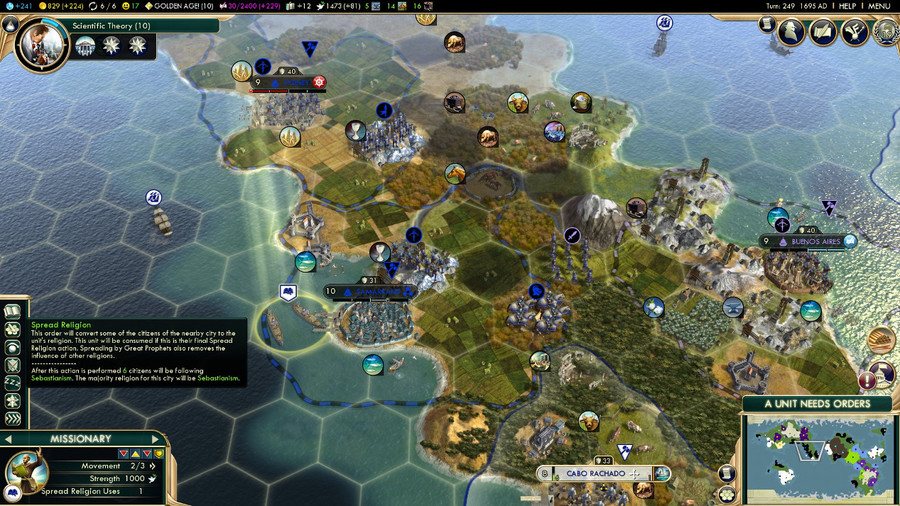
Bypassing the hostile Sydney, the Sebastianist mercenaries travel to Samarkand to spread the word of the faith, and finds receptive listeners in the locals. The spread of Sebastianism to the new continent seems all but assured at this point.
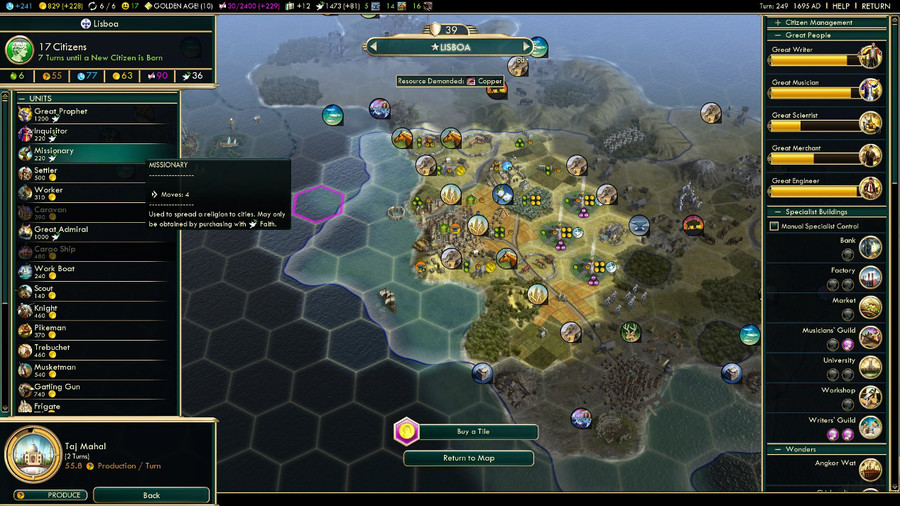
New scholars are brought into the fold, and plans are made to send them on a much greater mission.

Ashurbanipal understands the value of trade.
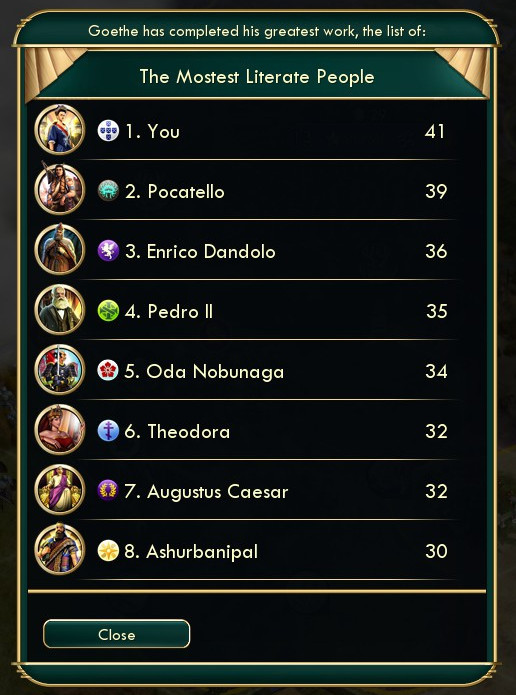
The Portuguese understand just about everything else.
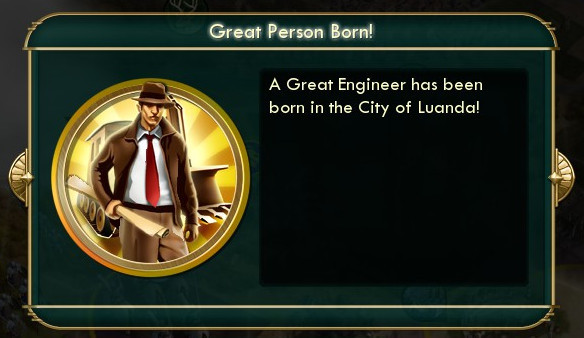
New great minds are born every day when they are free to think and act as they will.
Note the new look for Post-industrial Great People.
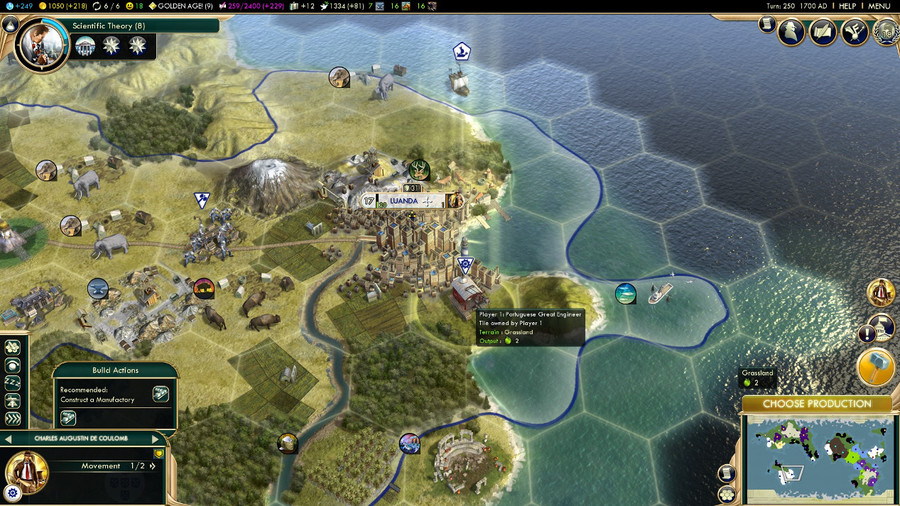
This one seeks to rival the famous shipyards of Lisboa with a manufactory of his own.
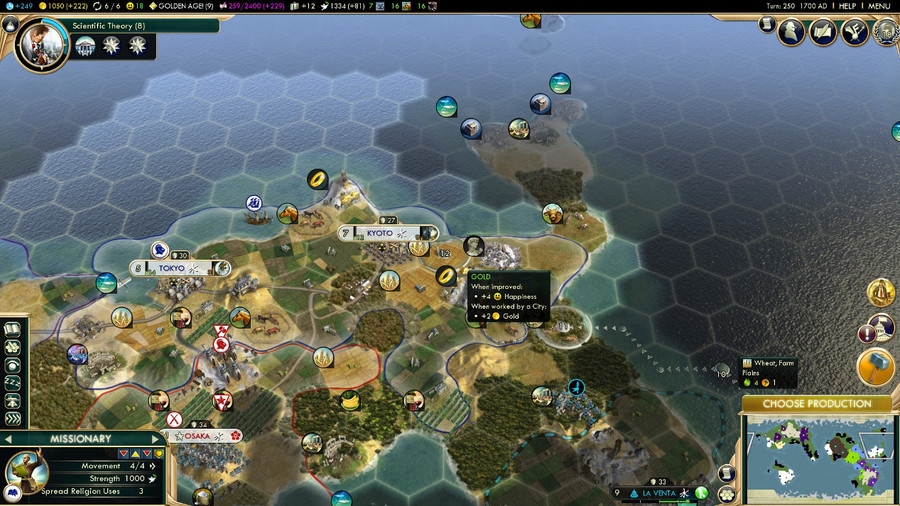
The Missionaries' new destination is Japan, to make good on promises made to educate the locals in the faith.
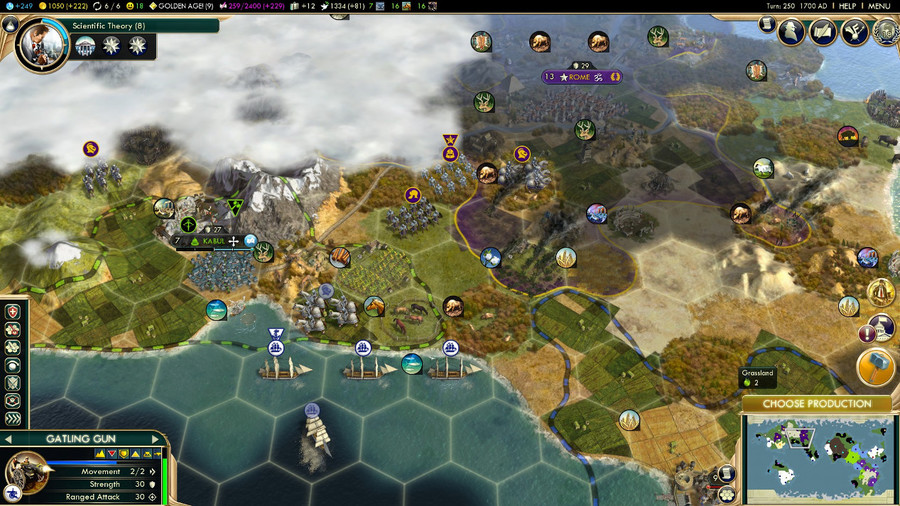
A retaliatory force in the East chases the Knightly liberators back into Kabul, but Andrea Doria stands ready to blast them to pieces once they blunder into firing range.

The Industrial Revolution affects all, as even the sleepy hamlet of Cabo Rachado is suddenly introduced to advanced manufacturing.
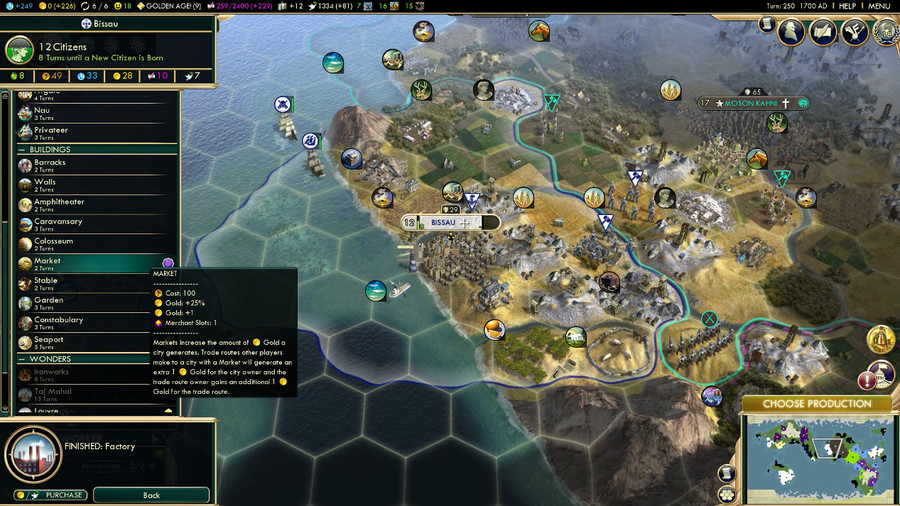
Bissau begins to explore the possibility of making more money, despite some characteristic protest from, well, Protestants.
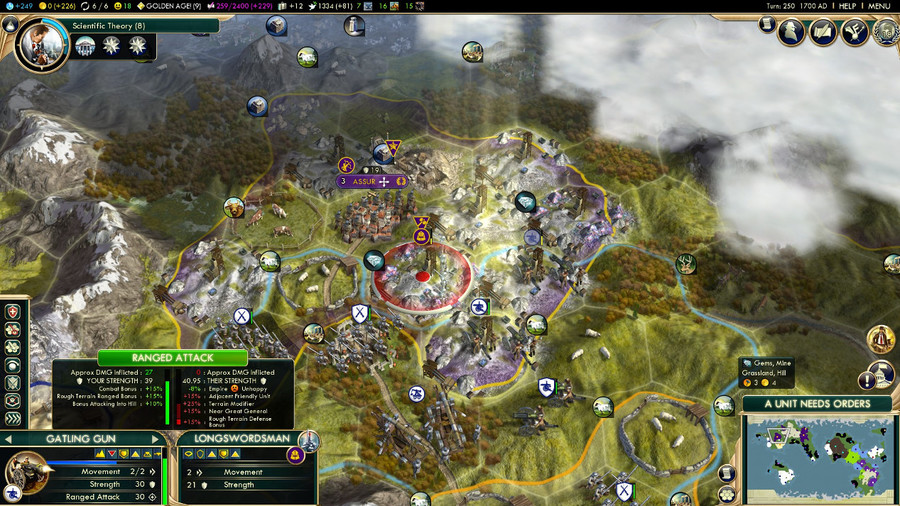
Gunfire rains down upon the Roman lines, and steel armour alone is not enough.
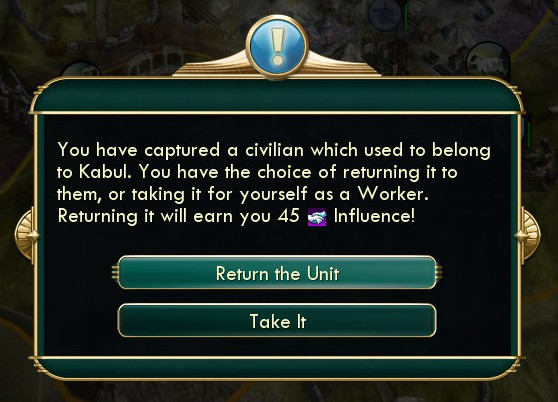
Upon realizing that this group was holding more Afghani hostage, the people of Kabul celebrated further upon the return of more of their long-lost relatives.
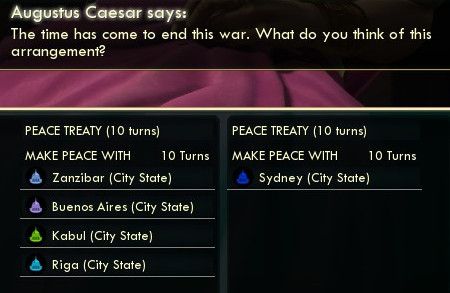
The Roman makes a pathetic excuse for a peace deal, and is rejected out of principle.

Doge Dandolo once again offers his hand in friendship, and to this, President Bragança is willing to concede that he may be making a good deal.

The Byzantines will always be friends to the Portuguese.

Brazil, however, also has a place as the architect of this strange web of allegiance.
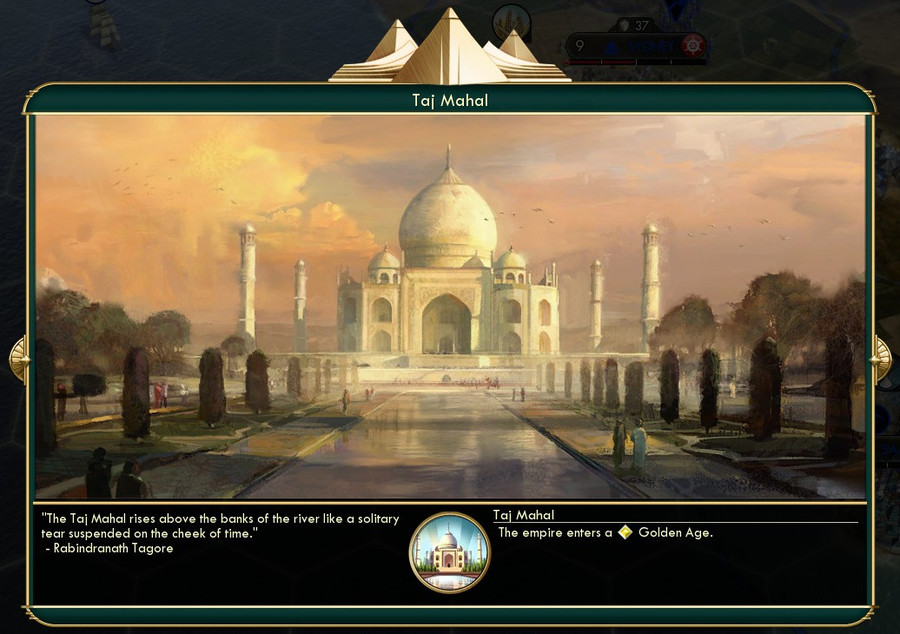
It is in the spirit of this togetherness that the palace of Lisboa is reborn as a building dedicated to art. Architecture as a measure of the power of the people, not just their monarch.
(This added 20 turns to our extant Golden Age counter, which means we will be in a Golden Age for nearly 50 turns. Not too bad.)
The celebrations continue long into the night.
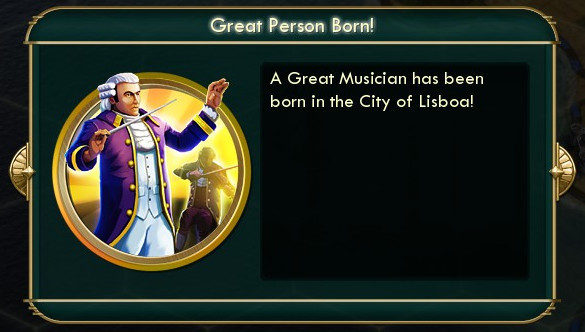
During these celebrations, a lauded composer presents his latest piece to the populace.
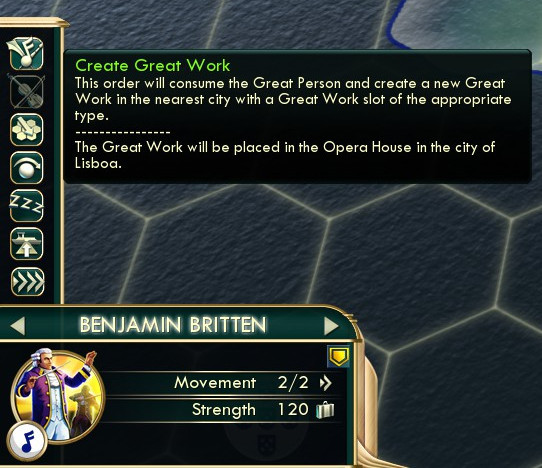
It is said to be a piece composed of samples of works from pieces he has heard in his travels around the world.
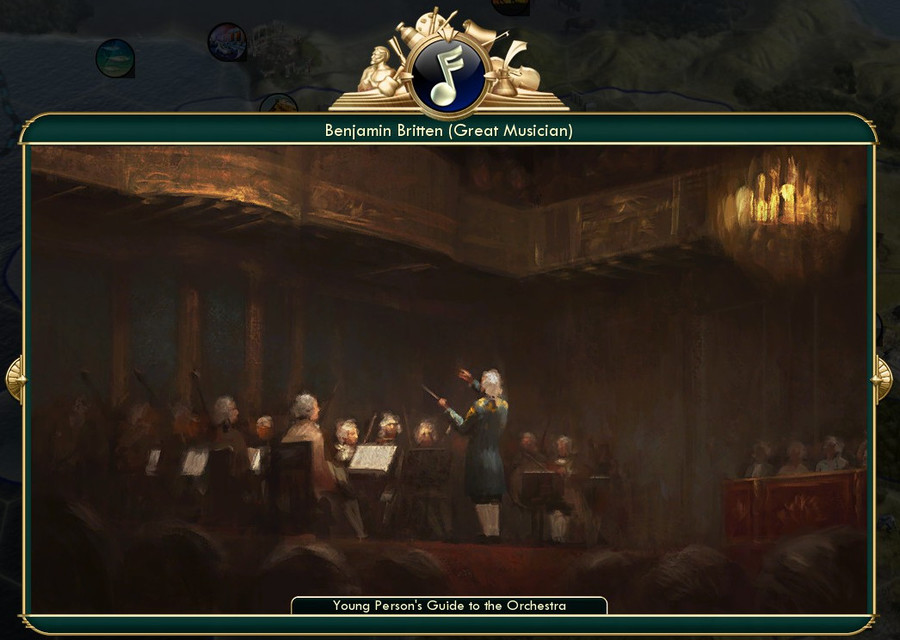
The medley is profoundly well-received and is said to be a wonderful way to experience world travel from its home in the Lisboan opera house.
The other option for Great Musicians is to undertake a Concert Tour in another Civ's territory, which causes your Tourism score with that Civ to jump suddenly. If you want to gain Culture, though, it is work making the Great Work instead.
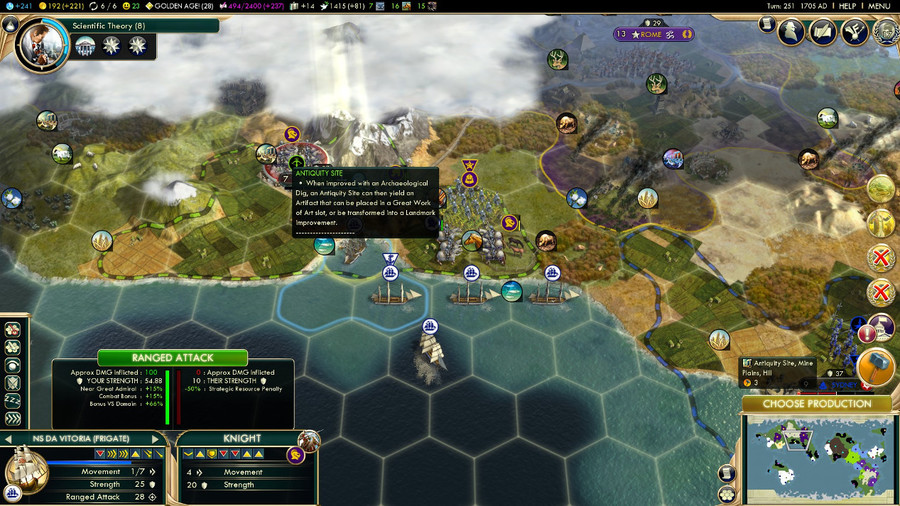
As anticipated, the Romans find themselves in cannon range and suffer wrathful retribution.
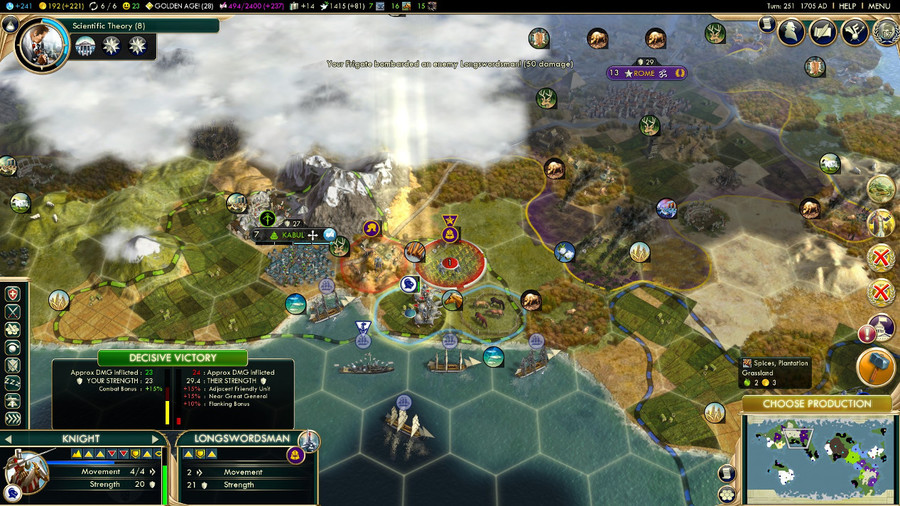
In the counter-charge, the Knights manage to corner and eliminate a famed Roman general, causing morale to plummet among their ranks.
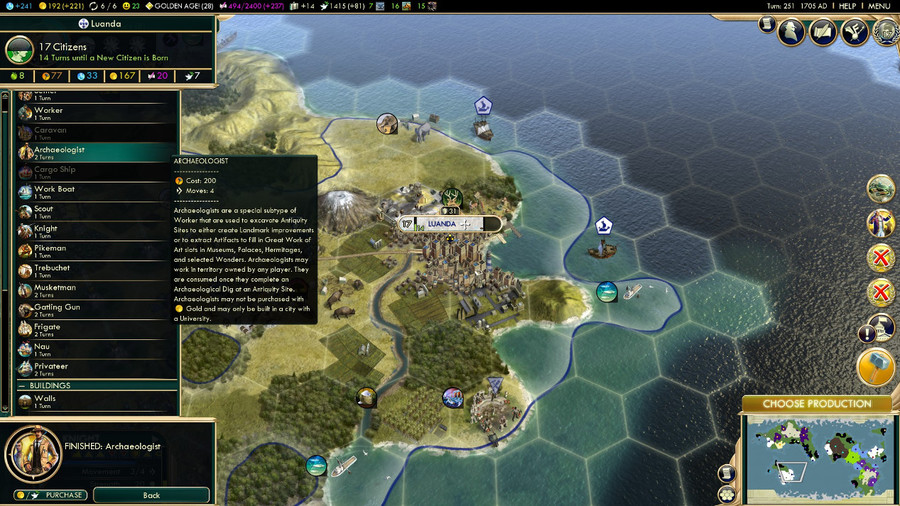
Luanda continues to make good on their promise to learn about the past.
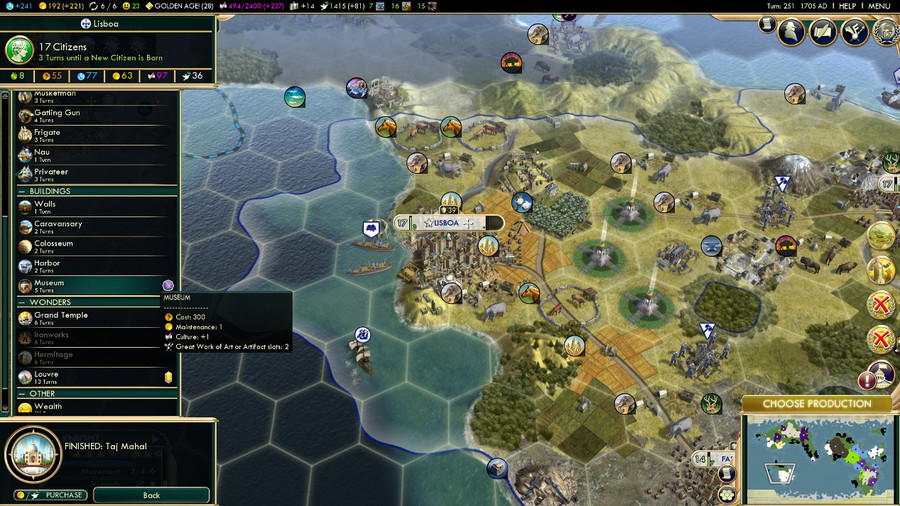
The ever-supportive capital responds in kind by offering a place to keep the resulting discoveries.

The Shoshone continue to display small appreciations for Portuguese actions on a global scale.
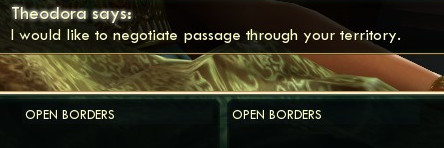
Byzantine borders are opened to the Portuguese once again in exchange for similar considerations.

Brazilians and Portuguese are joined at the hip if ever any two distinct cultures were.
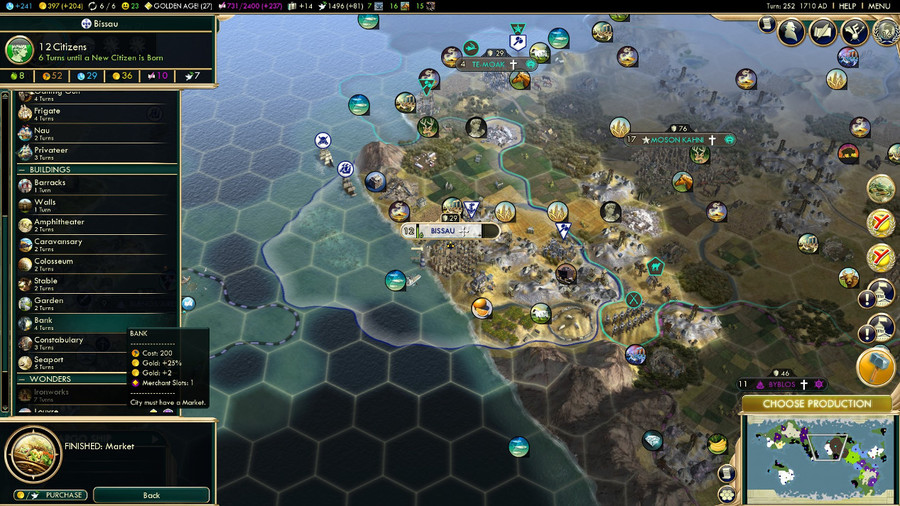
Bissau only grows wealthier, at times despite itself.
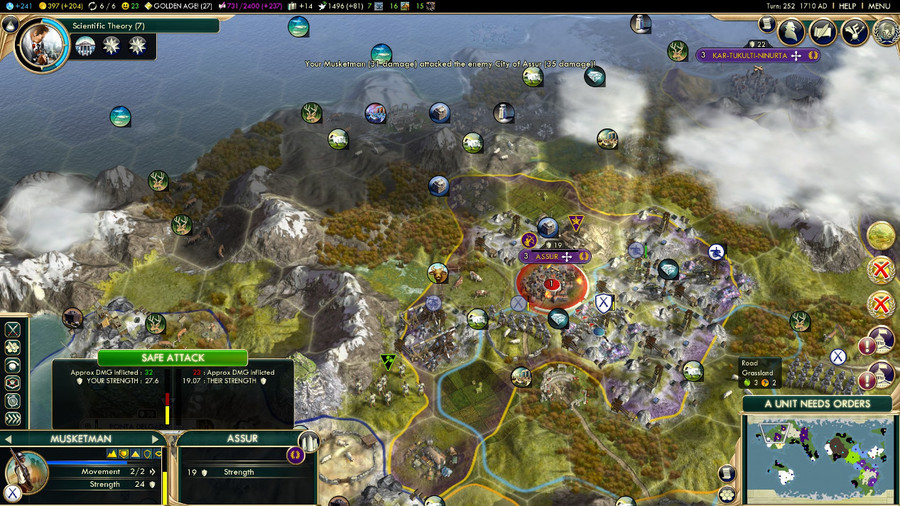
The Açorean muskets rain down fire upon Roman occupiers.
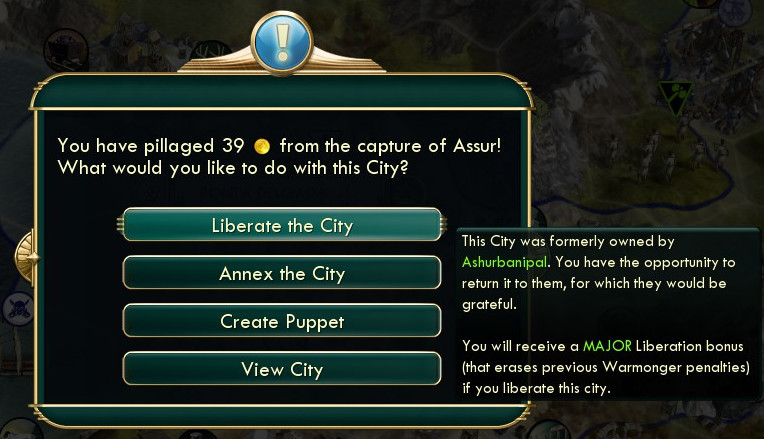
With predictable results.
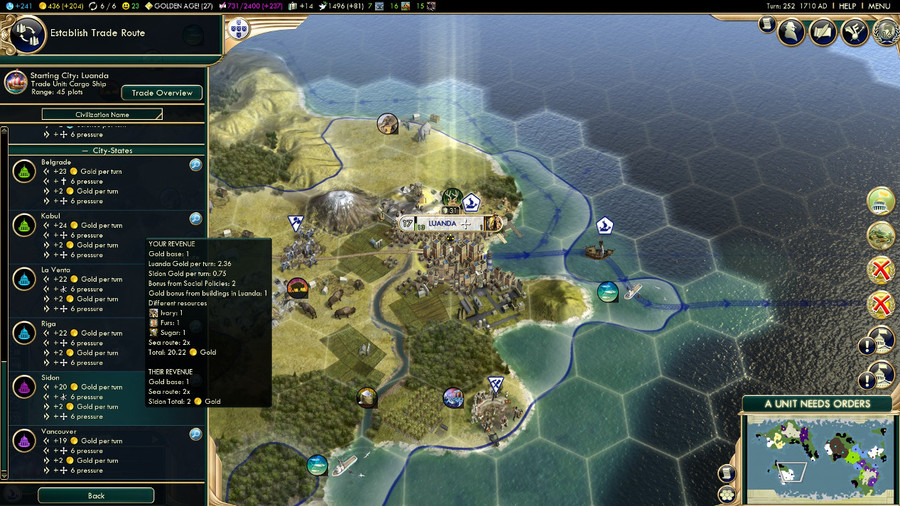
The gears of the economy continue their eternal grind.
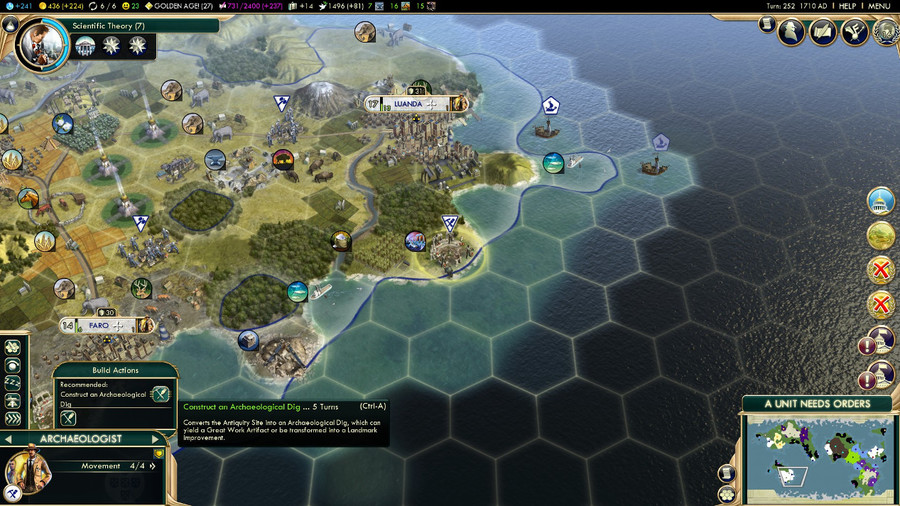
However, the time has come to unlock the meanings of the past.

Finally, the Shoshone leader displays an unprecedented willingness to bury the hatchet, and historic portraits are painted as President Bragança shakes his hand for the first time ever in the city of Bissau. The move is lamented by Protestants and Sebastianists alike due to supposedly irreconcilable differences between both groups, but on a global scale this new friendship represents the creation of the largest and most significant alliance the world has ever known.

Words of congratulations flood in as President Bragança considers her next move.

Of course, old friendships must be reinforced as ever by promises of mutual protection.
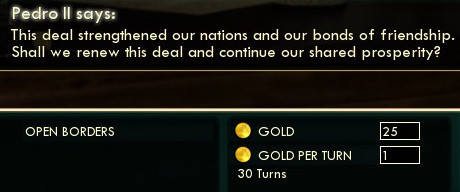
As well as economic considerations for services rendered.
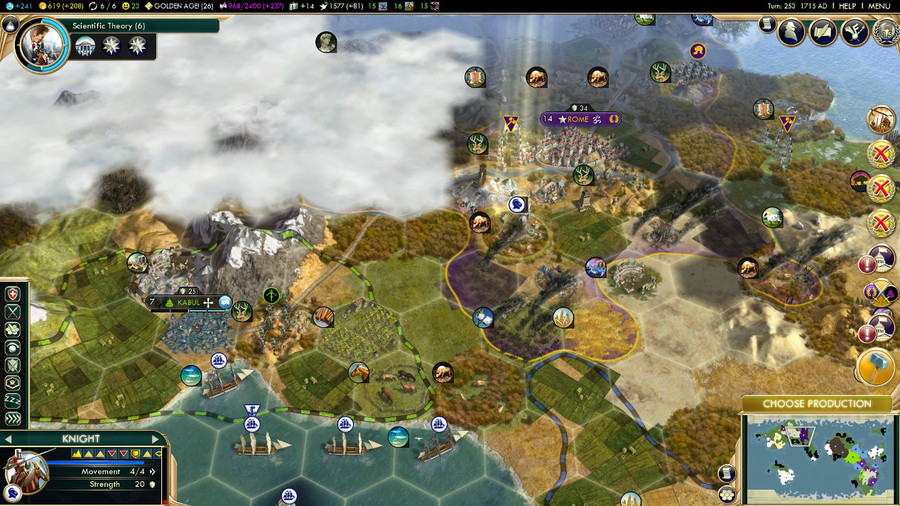
However, the political future of a hated enemy remains in the balance...
We want the Romans punished, that much is clear, but the question is a matter of degree.
We have the option of treating them as we did the Japanese. By capturing and installing puppets in Rome and possibly at least one other city, we can ensure that they can never again attempt such aggressive actions against other nations. This would of course also gain us access to their Wonders, Luxuries, and Great Works, and we would incur absolutely minimal diplomatic penalties for doing so since we are friends with every other nation and they all still hate Rome (I hovered over the city and saw that I would incur Minor penalties at worst for capturing the Roman Capital).
Alternatively, we settle for the liberation of the remaining Assyrian territories and resolve the conflict quickly. This will likely be easier as I am certain we can negotiate that as a deal with Rome in short order, but it will likely...be a less interesting finish to the story both narratively and mechanically. We will miss out on seeing part of the interior of this continent, too.
Either way, let me know what you all think. Also, sorry for the wait and intense length of this one post, as I will try to make them shorter for the future.
Voting will close Friday.